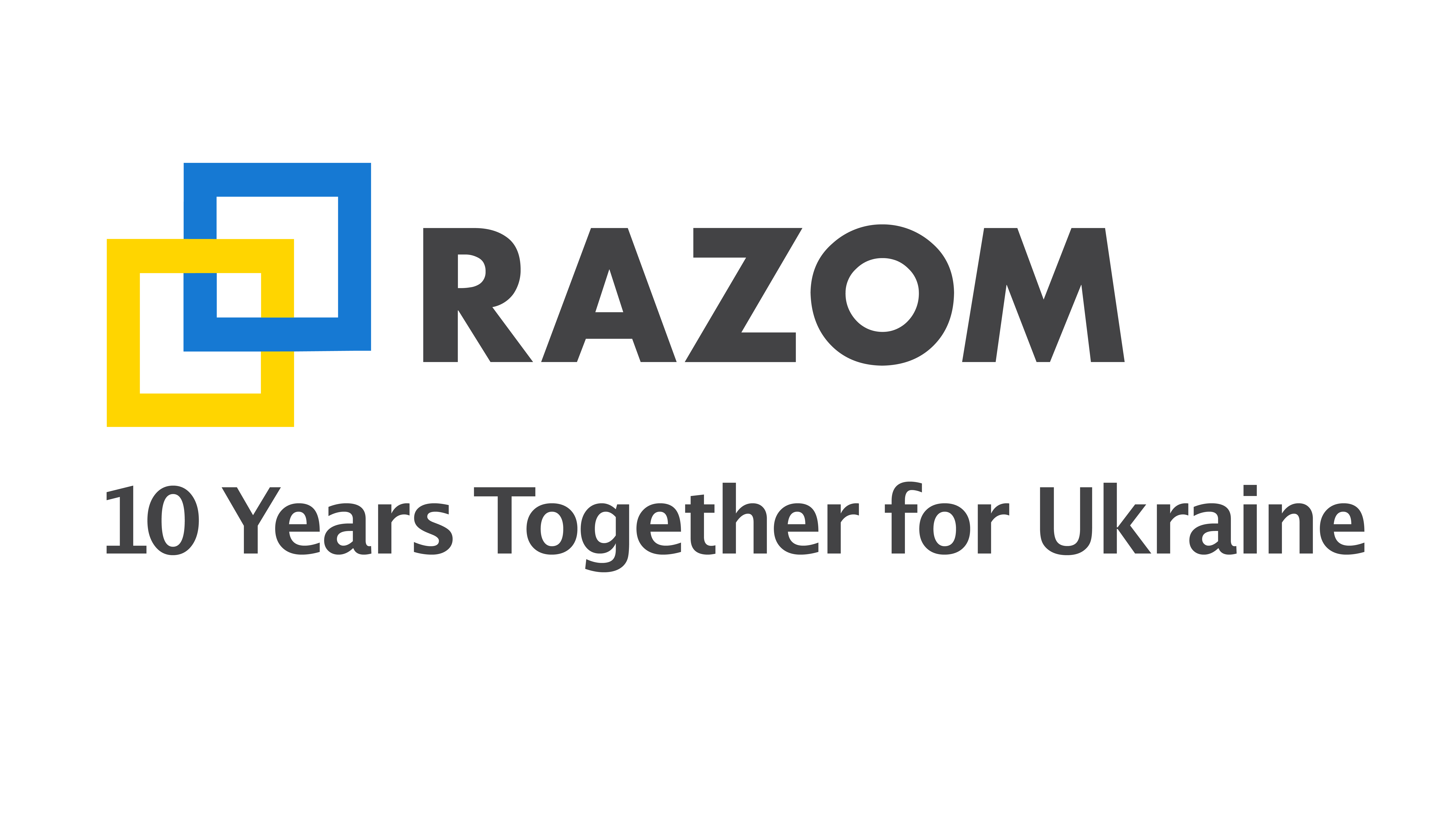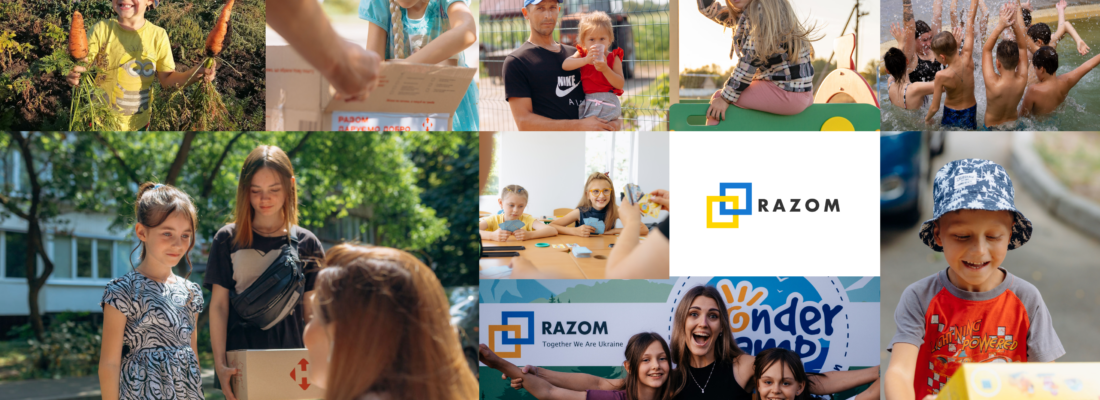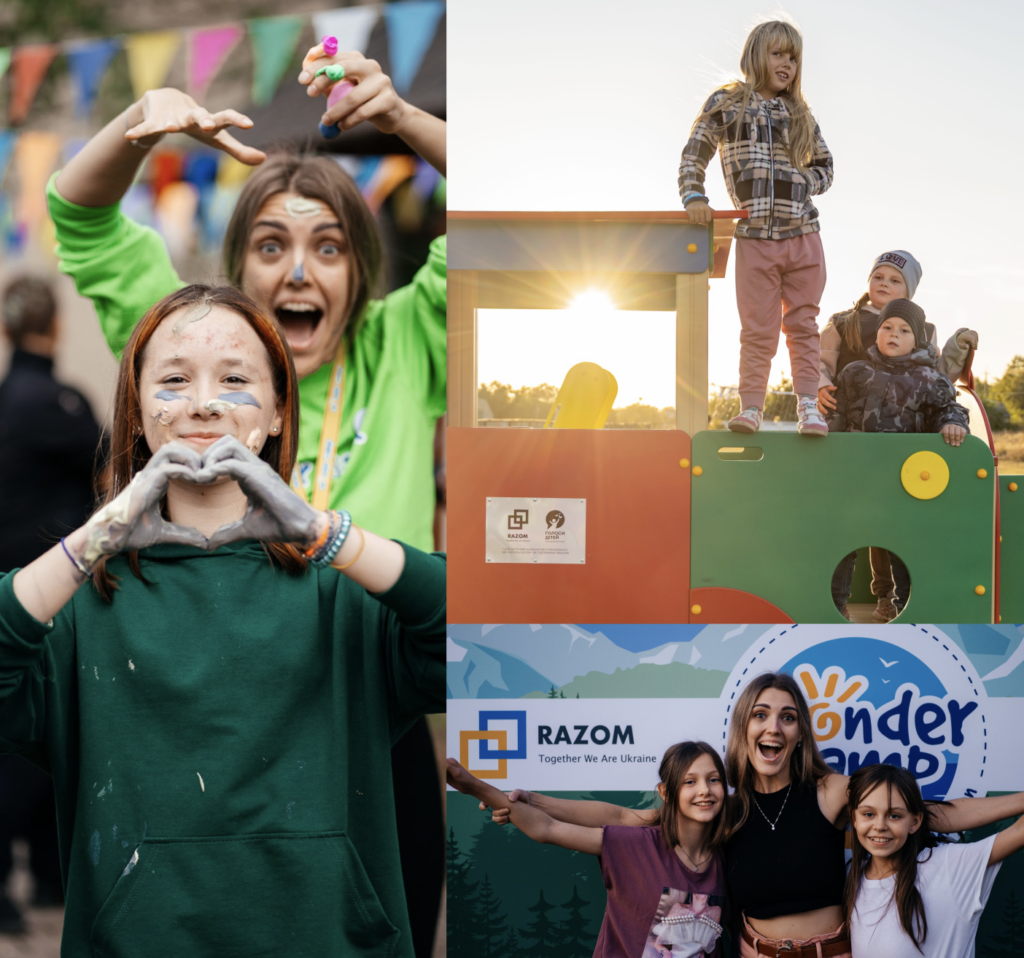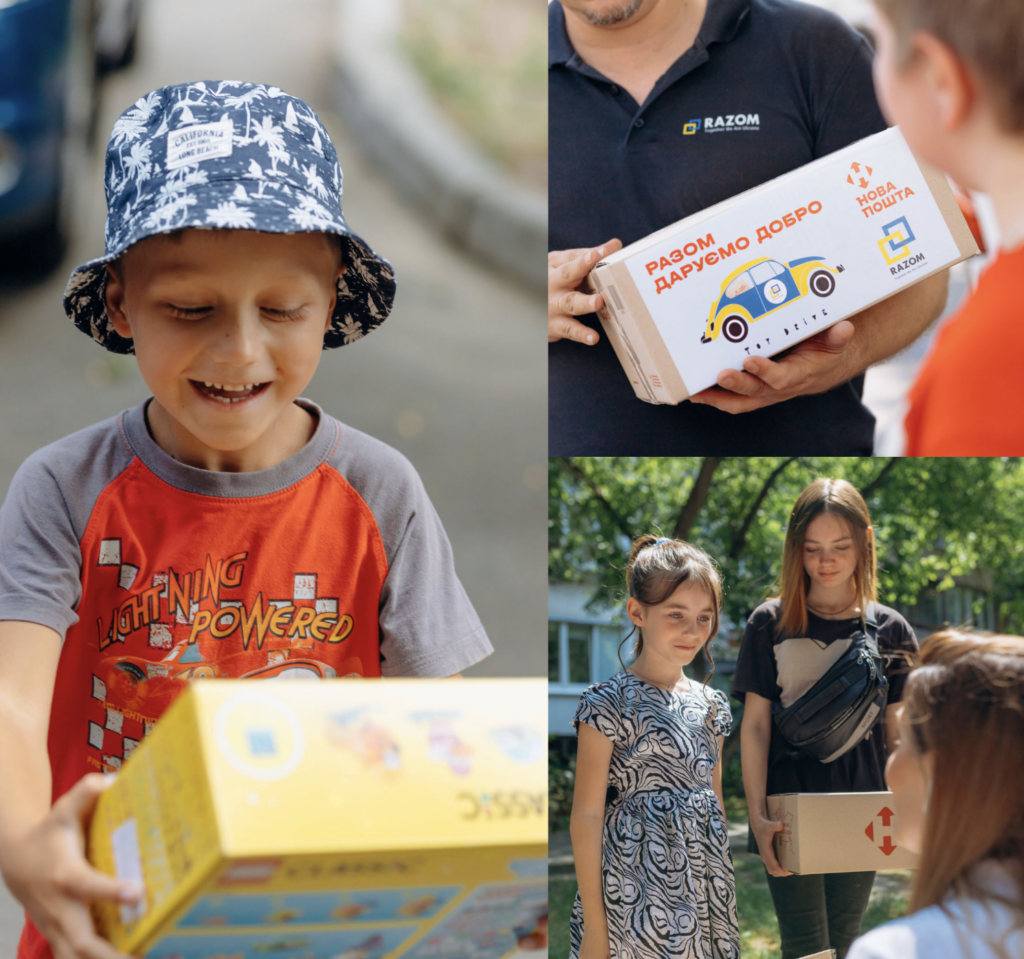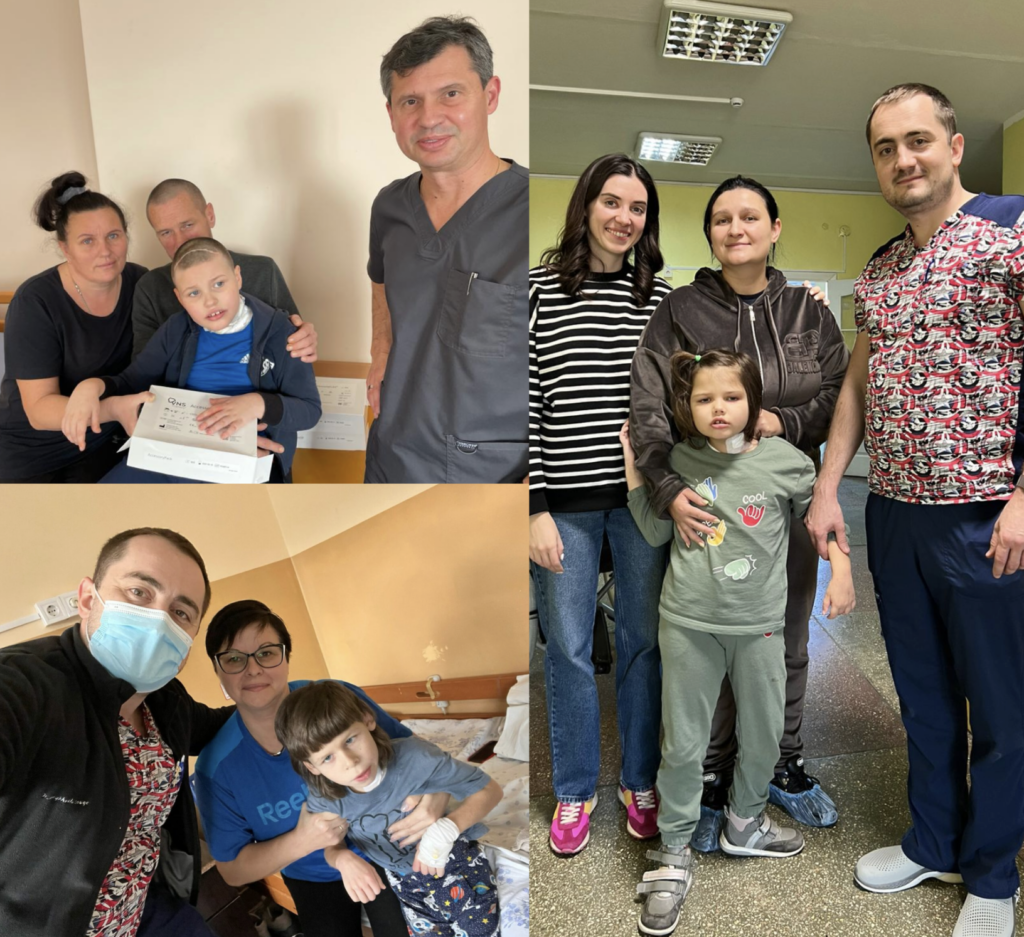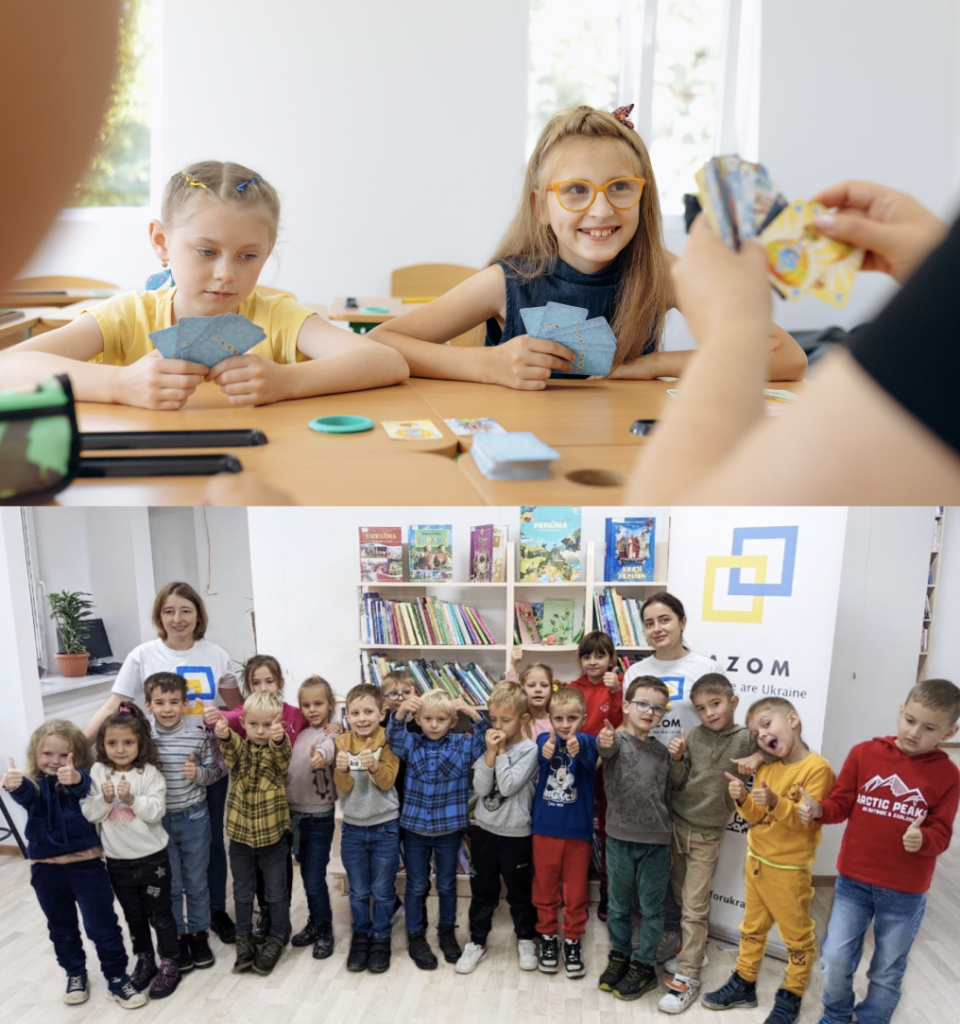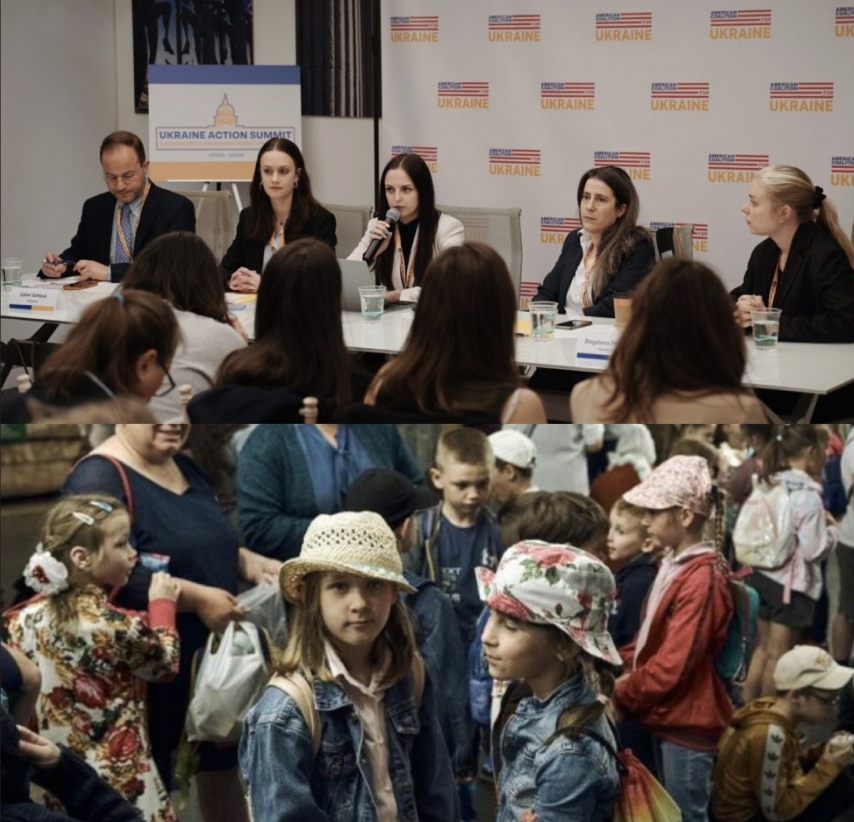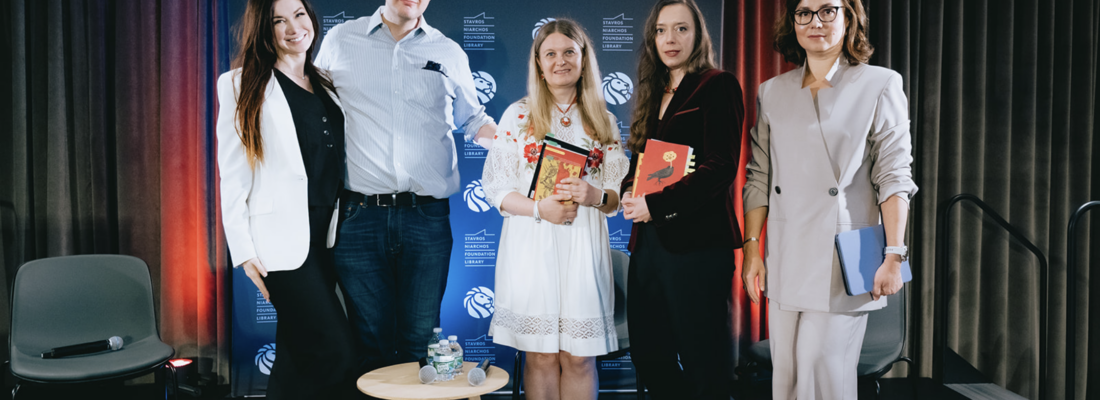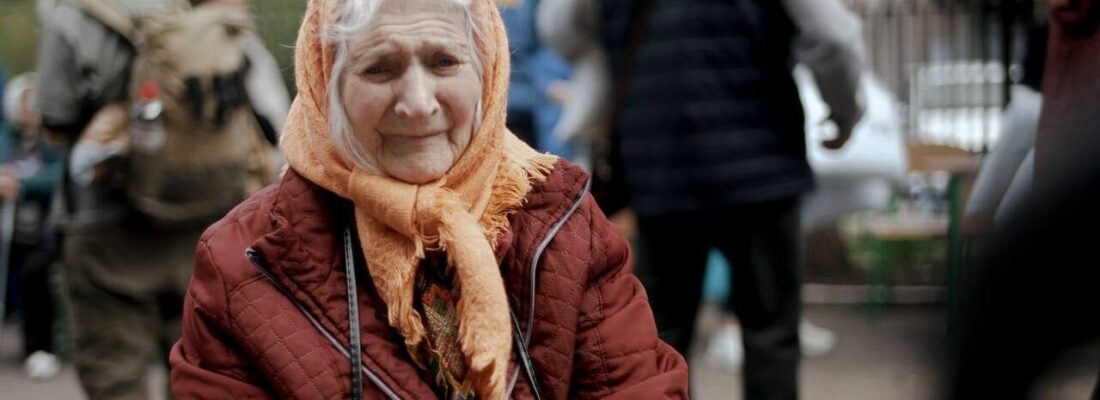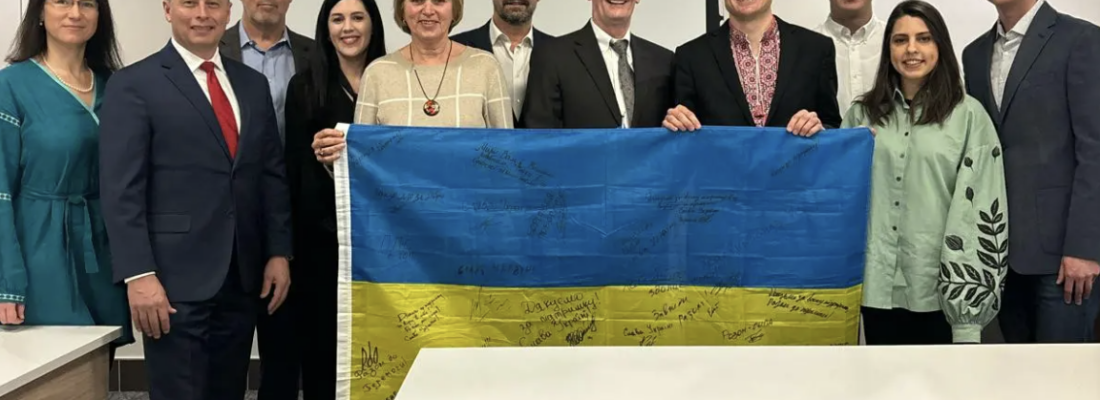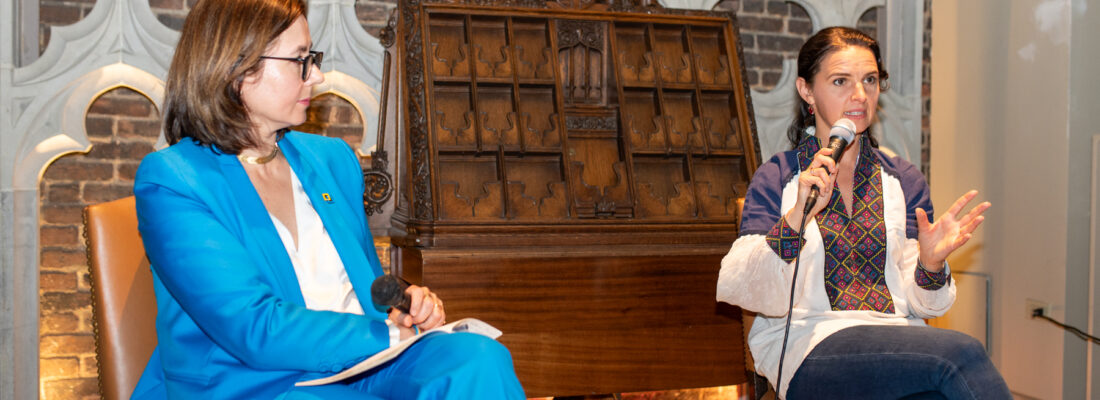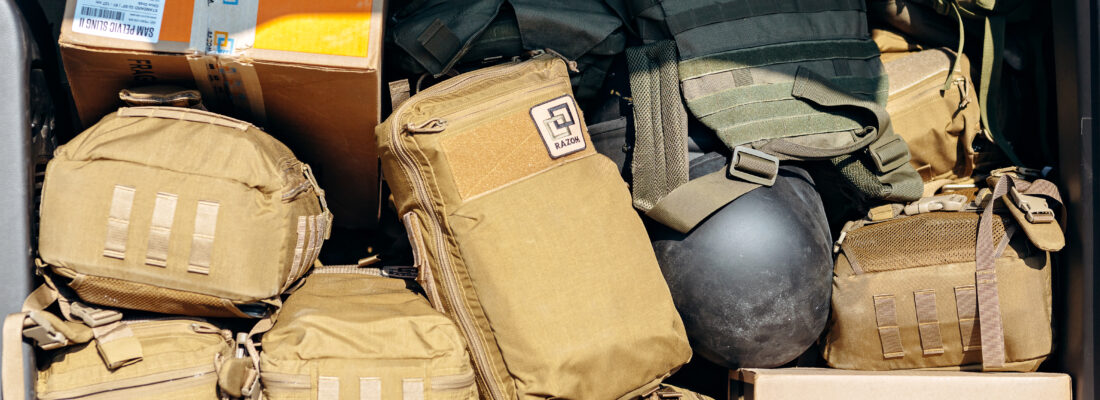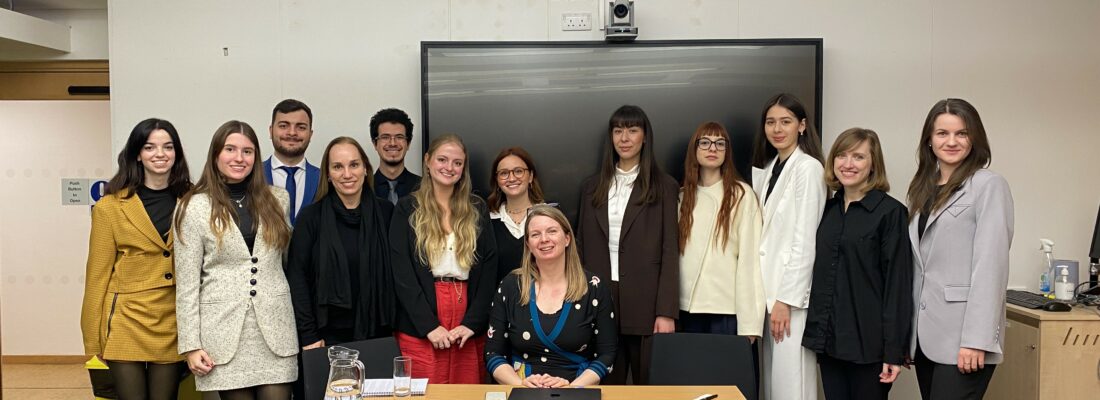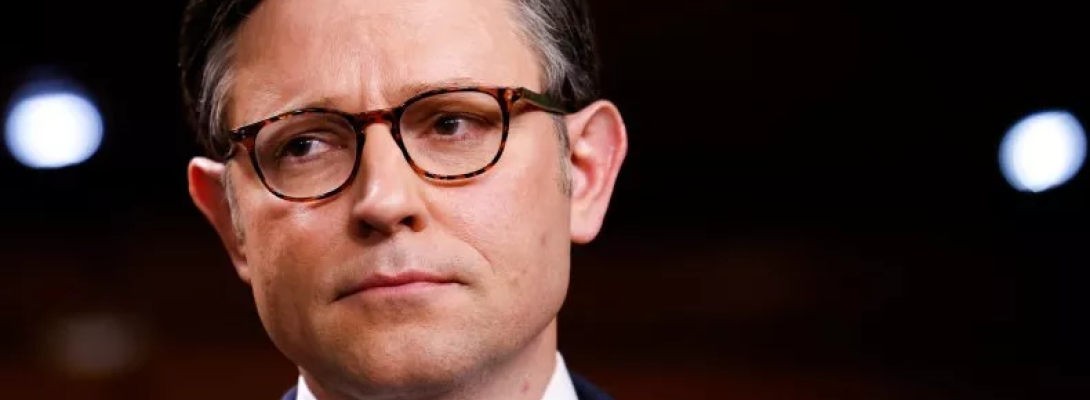Ilya Kaminsky with Yulia Musakovska and Olena Jennings at NYPL: In the Hour of War
On May 9th, Ukrainian poetry was heard at the NYPL’s Stavros Niarchos Foundation Library. The New York Public Library (NYPL), Manhattan’s largest circulating library, was recently renovated with a generous gift from the Stavros Niarchos Foundation and is a prime location for popular literary events in its 7th-floor terraced space.
Razom has been developing Ukrainian literary events with the librarians here for over a year. This was our second collaboration with them, following t last fall’s Ukrainian Cultural Festival, which featured writers Olena Stiazhkina, Andriy Kurkov, and Oksana Lutsyshyna.
At the center of this event were two books of poetry from Arrowsmith Press: Yulia Musakovska‘s first collection in English, The God of Freedom, and an anthology of Ukraine’s best poetry, In the Hour of War, co-edited by Ilya Kaminsky and Carolyn Forché. Both collections underscore the urgency of hearing poetry from a land devastated by war, affecting people, buildings, animals, and nature.
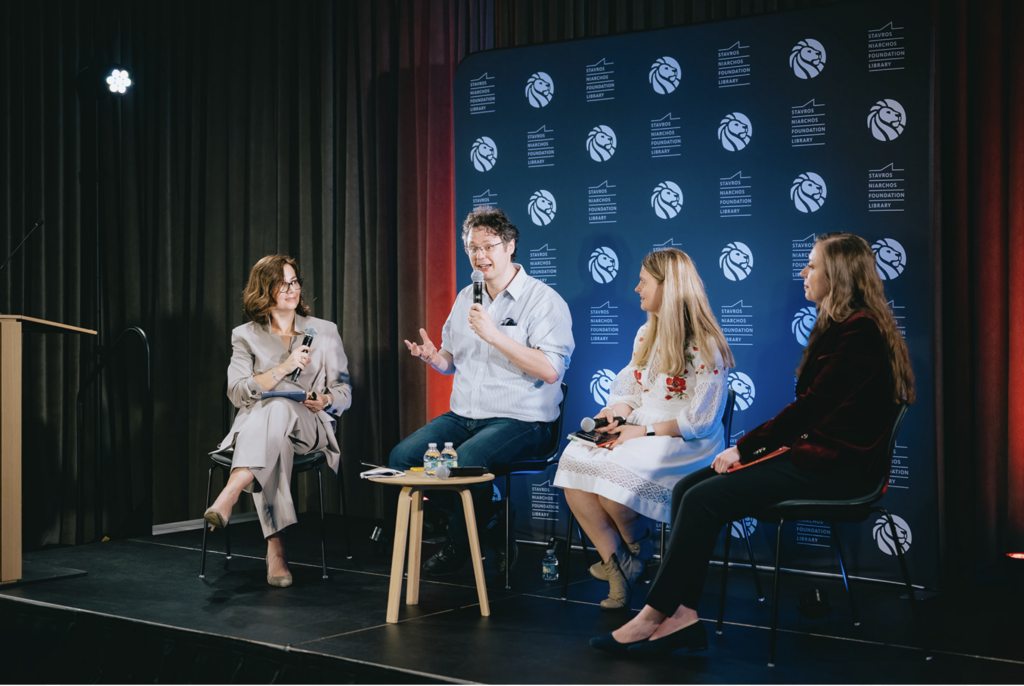
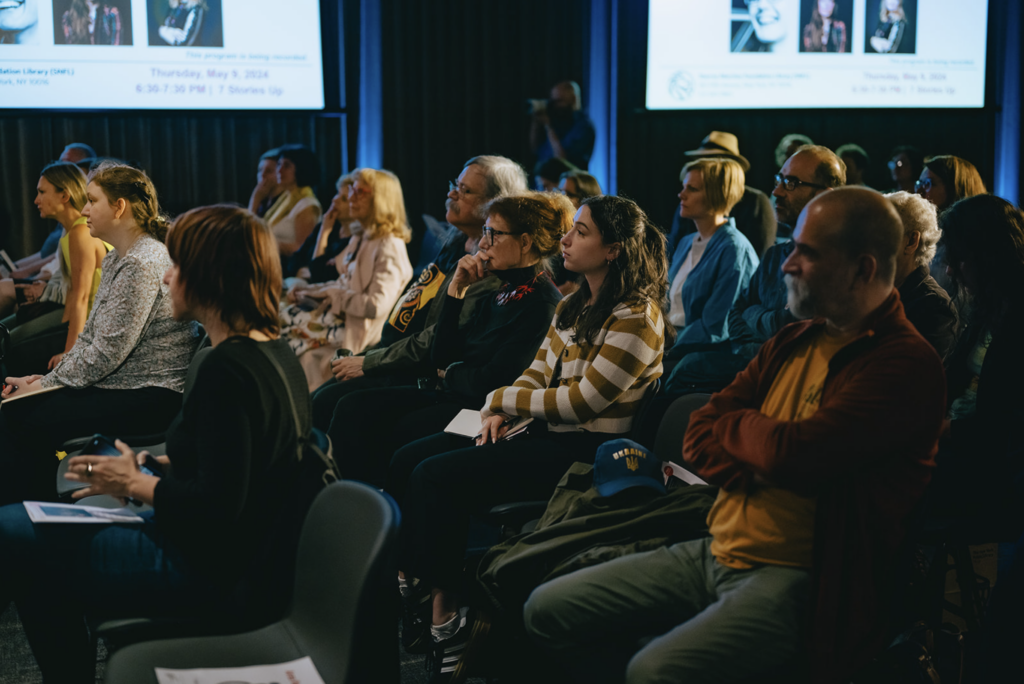
The anthology features the work of many poets and translators. Ilya Kaminsky presented his translations of Lesyk Panasiuk, Ostap Slyvynsky, Dmitry Blizniuk, and Anastasia Afanasieva, while Olena Jennings, a NY-based poet and translator, presented her translations of Kateryna Kalytko and Iryna Shuvalova. Photos of the poets were displayed on large screens in the auditorium, creating a visual presence in the room.
Unfortunately, the duration of the event was limited – we could have read and discussed poetry and the war in Ukraine for hours more! This is why Razom plans to host additional literary events and why we recommend purchasing these books.
Ilya Kaminsky spoke warmly about Razom’s work in Ukraine and shared feedback he has received during his frequent travels there. He also mentioned his work with a children’s poetry club in Odesa. One short poem by a very young Odesa-based poet was read, which was incredible.
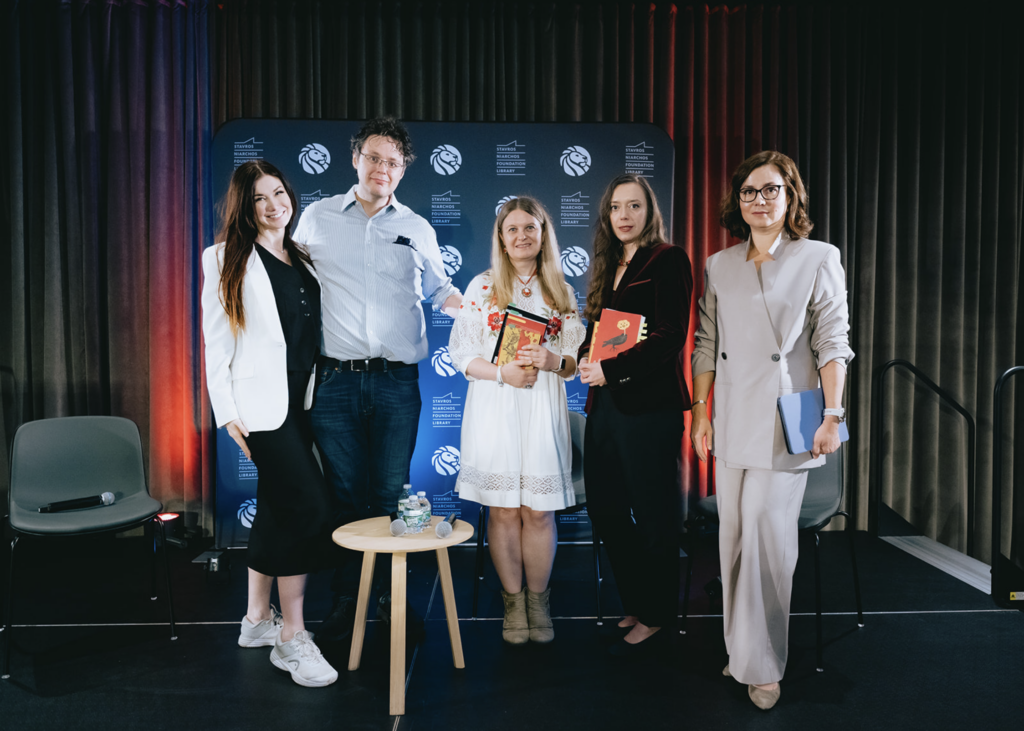
More on the Speakers:
Yuliya Musakovska is an award-winning Ukrainian poet and translator who lives in Lviv, Ukraine. She is the author of five poetry collections, with a sixth on the way. The God of Freedom was published in Ukrainian in 2021 and has recently been published by Arrowsmith Press. Her poems have been translated into over thirty languages. She is fluent in English and Swedish and has translated poetry from these languages, including the works of Tomas Tranströmer.
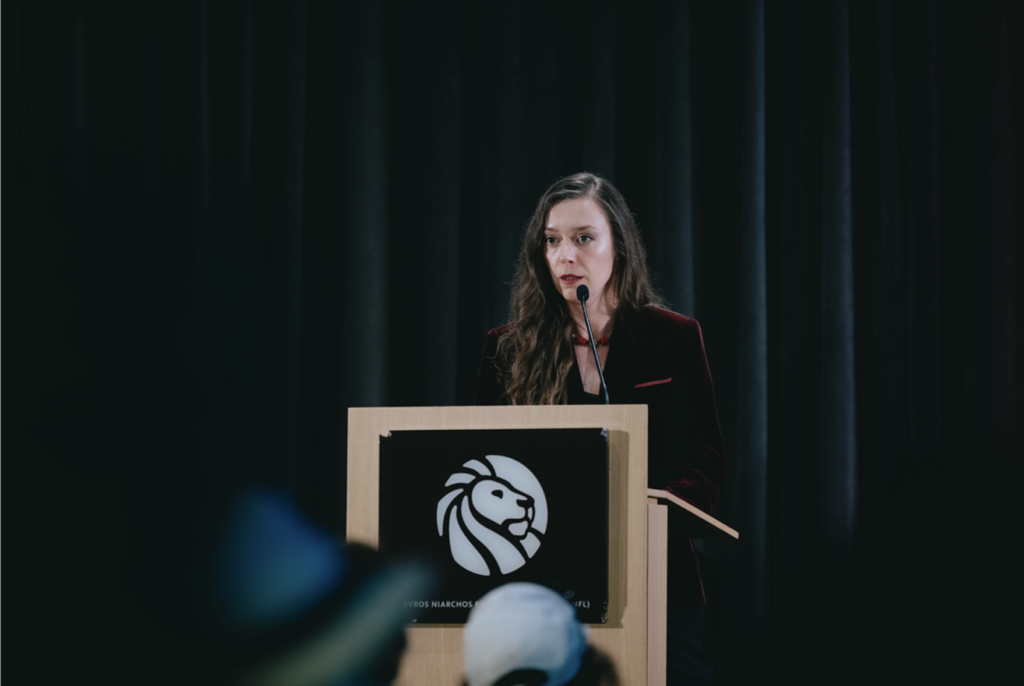
Olena Jennings is a co-translator of The God of Freedom. Olena is a NY-based writer, poet, and translator who has significantly contributed to bringing Ukrainian poetry to American readers. In addition to Yuliya’s poems, she read her translations of Kateryna Kalytko and Iryna Shuvalova. Olena is the founder and curator of the Poets of Queens reading series and press.
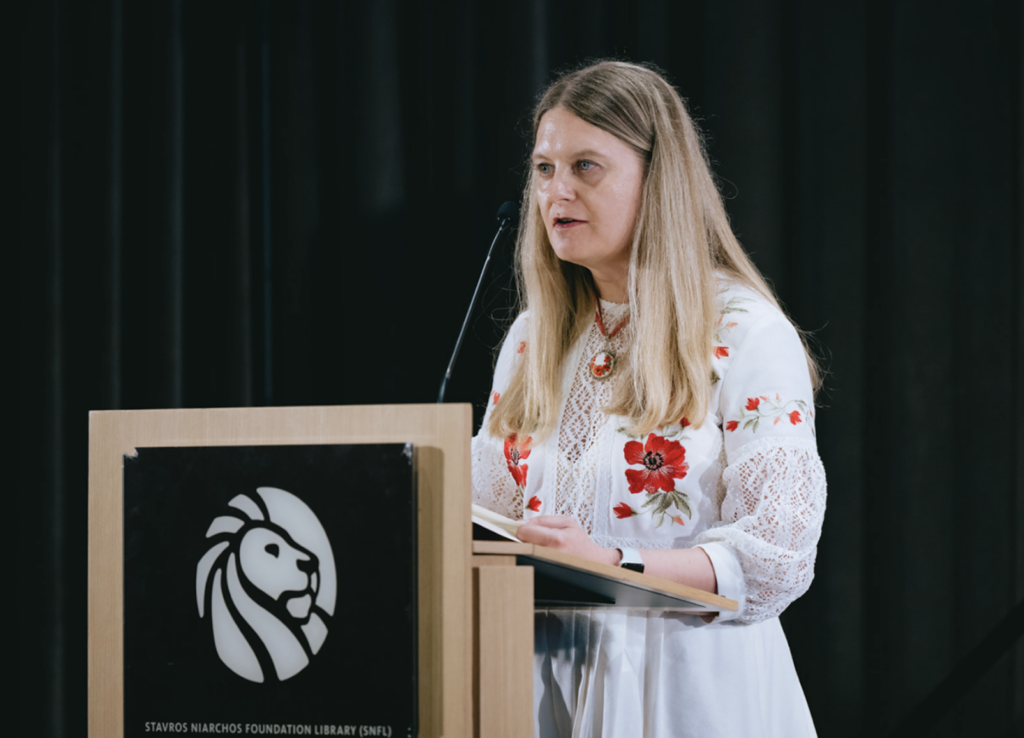
Ilya Kaminsky was born in Odesa, Ukraine, and now lives in the United States. He is the author of two poetry collections, Dancing in Odesa and Deaf Republic, which came out in 2019 and was featured on many best poetry lists that year. He is a professor at Princeton University. Ilya co-founded Young People’s Poems Against Missiles, a program in Odesa that supports young and very young poets. As the program movingly states, Poems can allow young people to articulate themselves when they are in bomb shelters.” In 2023, he co-edited In the Hour of War with Carolyn Forché, a collection of poetry from Ukraine.
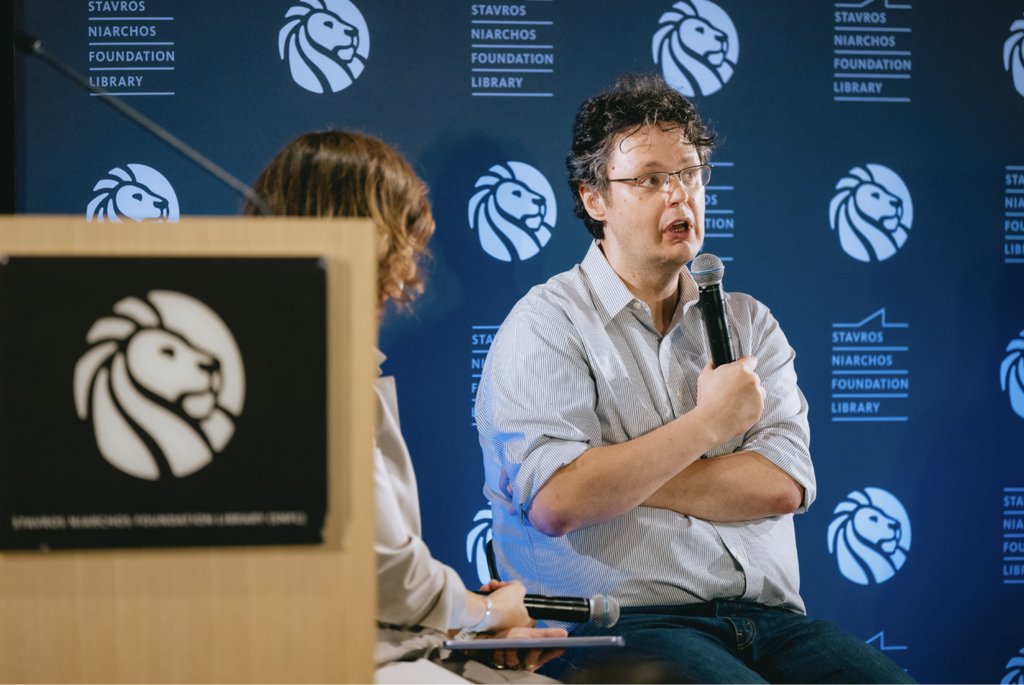
Join Razom Connect and discover the beauty of Ukrainian art, history, and voices!
Make sure to follow our newsletter and social media for more announcements!
Together, we can prove to cultural programmers that Ukrainian stories are necessary and that there is a large audience ready for them.
Razom-Led Letter With 60 Signatories Calls on the White House to Remove Limits on Striking Military Targets in Russia
Kharkiv Under Siege: Evacuations, Resistance, and the Plight of Vovchansk and Lyptsi
The city of Kharkiv and surrounding areas in northeastern Ukraine have been at the forefront of the war since Russia’s invasion in February 2022. Despite relentless shelling and attacks and because of Ukrainians’ toughness and fortitude, the city remains in Ukraine’s hands.
This year, there has been an escalation in fighting around Kharkiv, with Russia launching a new offensive in early May 2024.
Ukrainian forces are battling to hold back the Russian advance, with the villages of Lyptsi and Vovchansk being among the most vulnerable places. As the fighting intensifies, the number of people forced to flee their homes continues to rise. The most recent reports indicate that more than 5,900 people have been evacuated from the region, highlighting the desperate situation for civilians.
Vovchansk:
The town of Vovchansk, once a bustling community of 20,000 people, has been reduced to a ghost town due to the ceaseless bombardment. Only a few hundred residents remain, trapped in a war zone with dwindling supplies and limited access to essential services.
Razom’s Partners and Grantees are on the Ground:
“During the evacuations, all volunteer teams came under fire. One of the vehicles was completely shot up by the occupiers. The driver was wounded, but luckily everyone survived, thanks to the fact that this particular vehicle was armored. Most of the vehicles have “volunteer” written on them, but this does not stop the enemy. Civilians were also among the injured, who were wounded by Russian occupiers with weapons. People carry small bags with them, because there is no time to linger, and they did not plan to leave their homes. Among them are many middle-aged people (50+) for whom it is difficult to leave their home, their property, their livestock, everything that made up their life. However, evacuation is necessary to save lives,” says Vladislav Kulov, Kharkiv Media Hub, Razom’s partners.
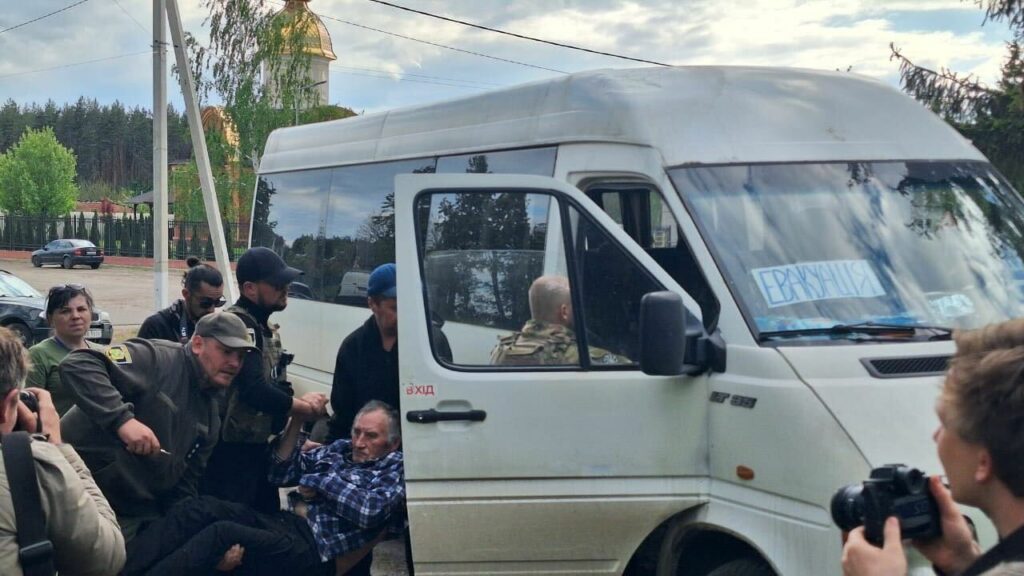
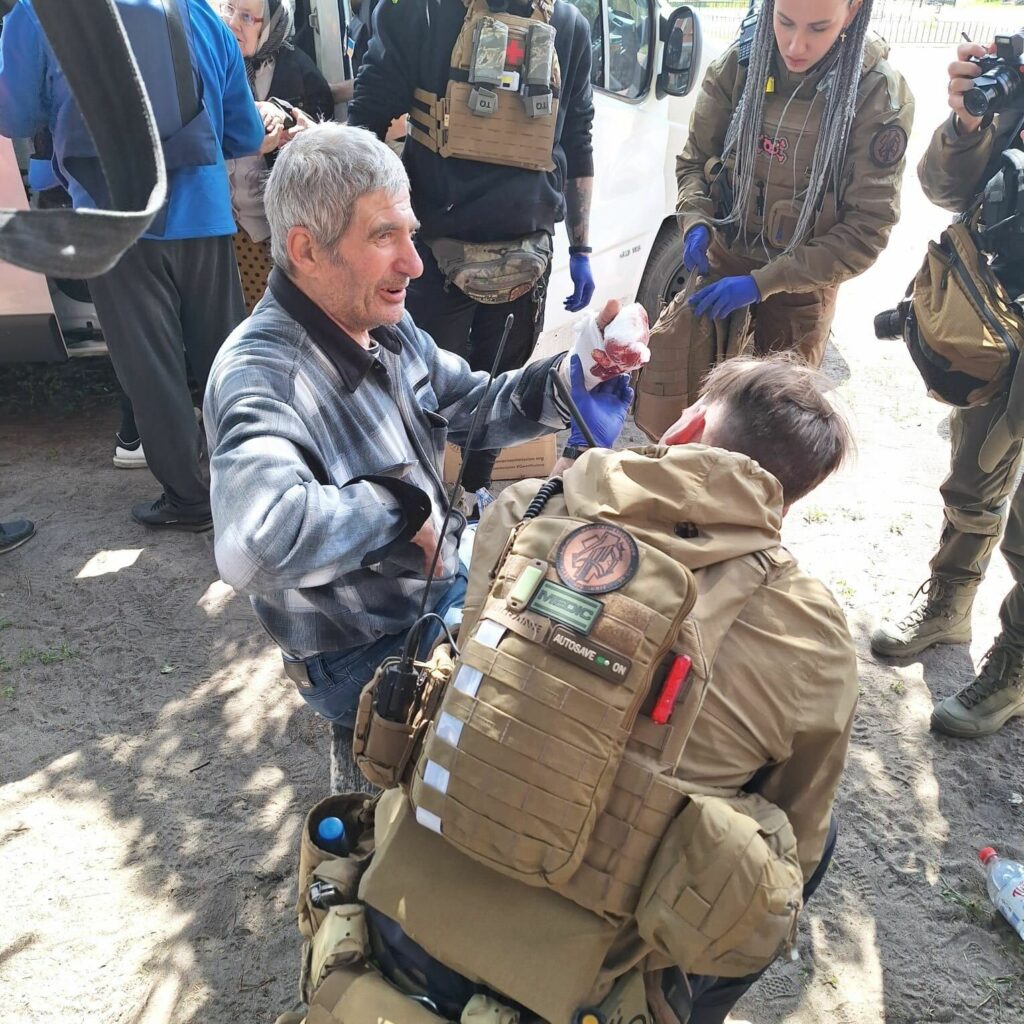
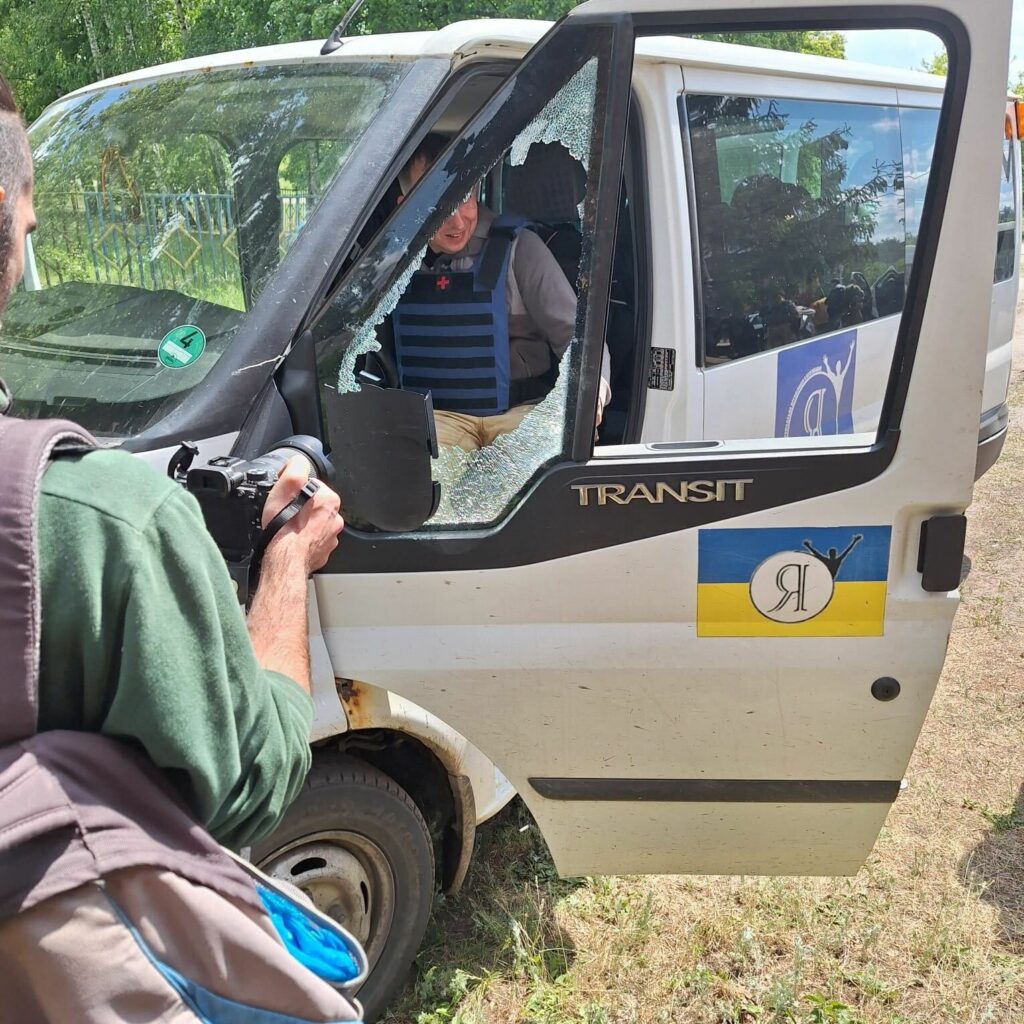
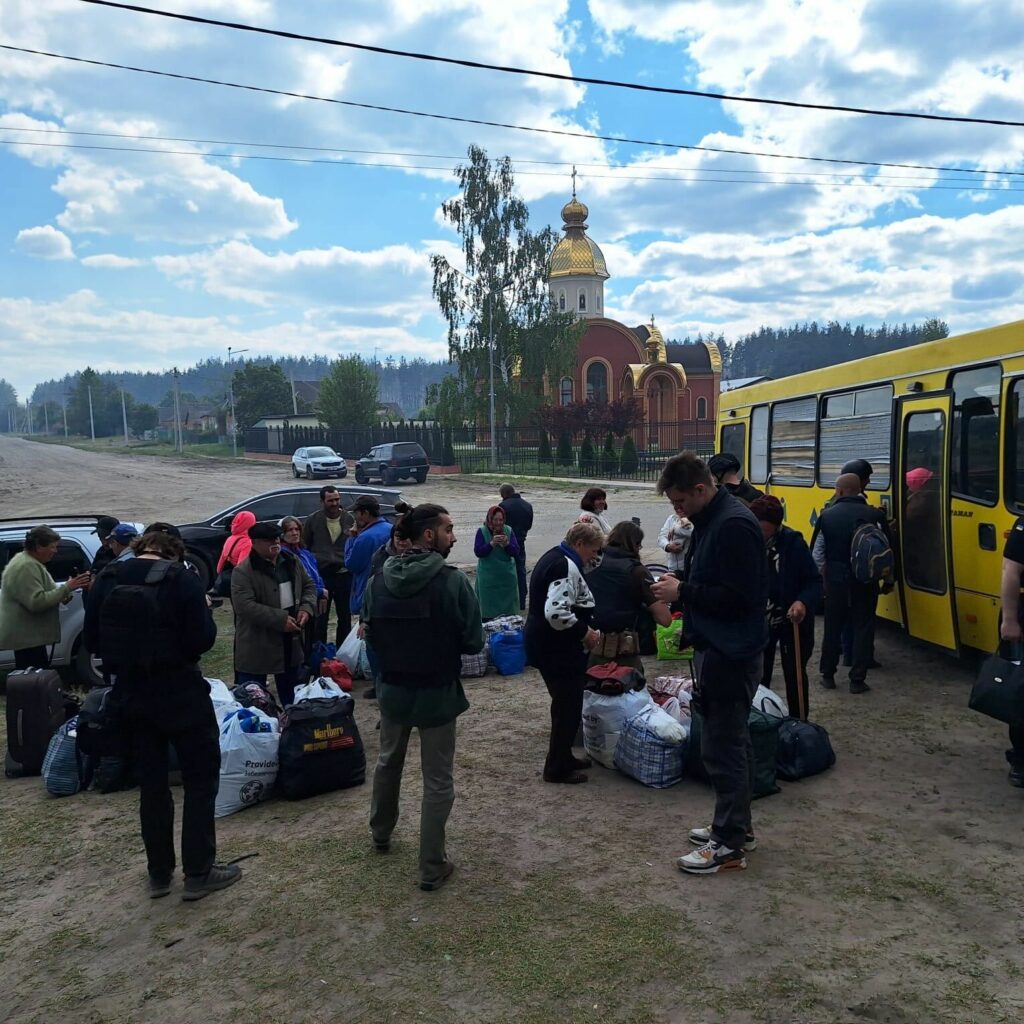
Lyptsi:
Just south of the ravaged Vovchansk lies Lyptsi, a village of roughly 4,500 people. While not as heavily bombarded as Vovchansk, Lyptsi’s fate is just as brutal. The village was occupied in the early days of the war by Russia and then retaken by Ukraine later in 2022. However, with the renewed offensive, Lyptsi finds itself back in the hot zone. Residents there are facing renewed shelling or possibly another occupation.
Razom has been working tirelessly to facilitate evacuations and provide aid to those displaced by the war.
Razom’s Partners and Grantees on the Ground:
“We are evacuating people from Lyptsi. Indeed, not only people. Today there were two dogs, chickens with chicks, a guinea pig, and a dozen ducklings. People are scared, sometimes very nervous. Most of them have already been under occupation. They say: ‘We won’t survive another time; they will kill everyone’. The process can be very difficult, some people hope that it will pass somehow, that there is still time.” – Oleksiy Almazov, Ukrainian Frontiers (Українські Рубежі), one of Razom’s grantees.
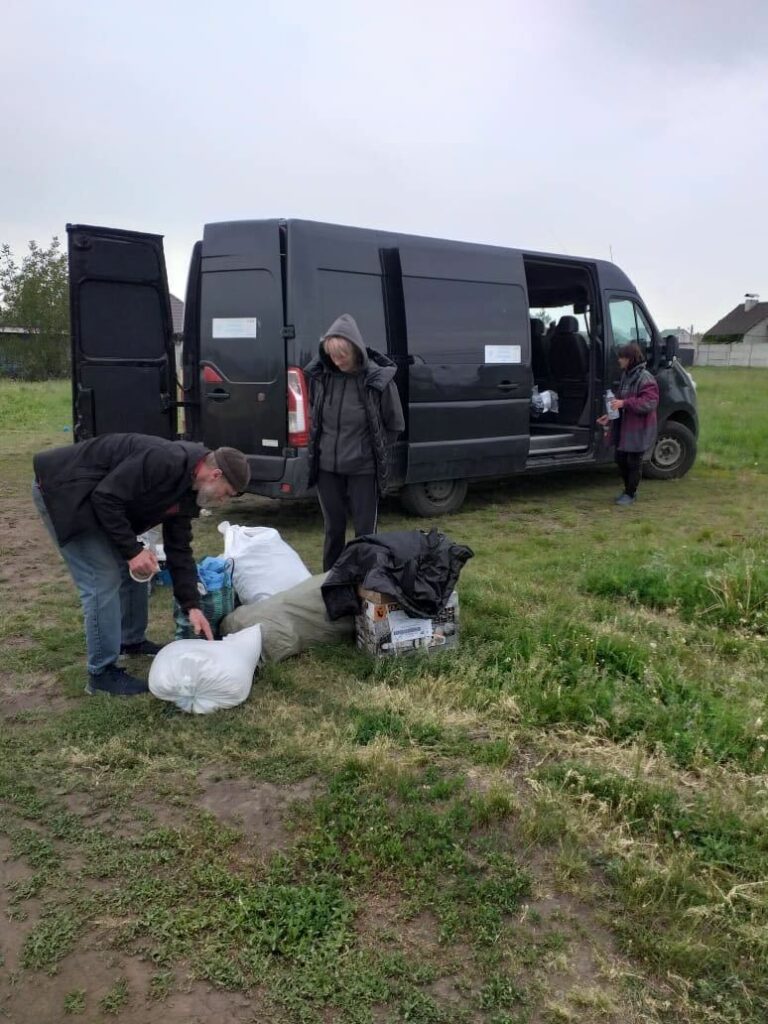
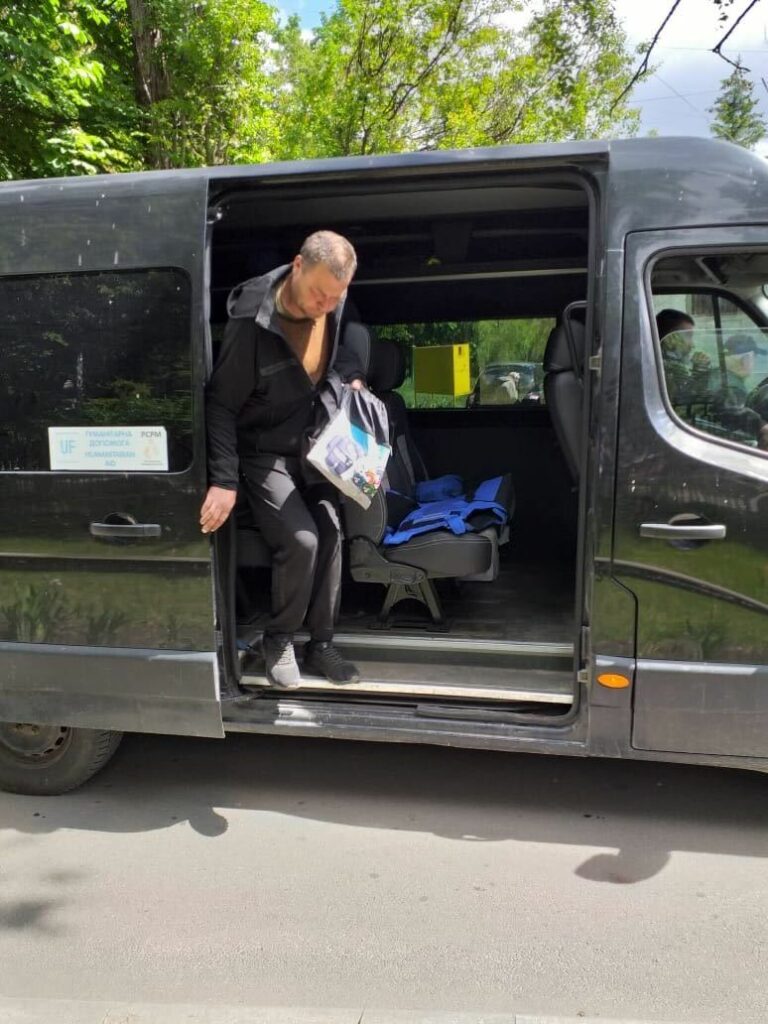
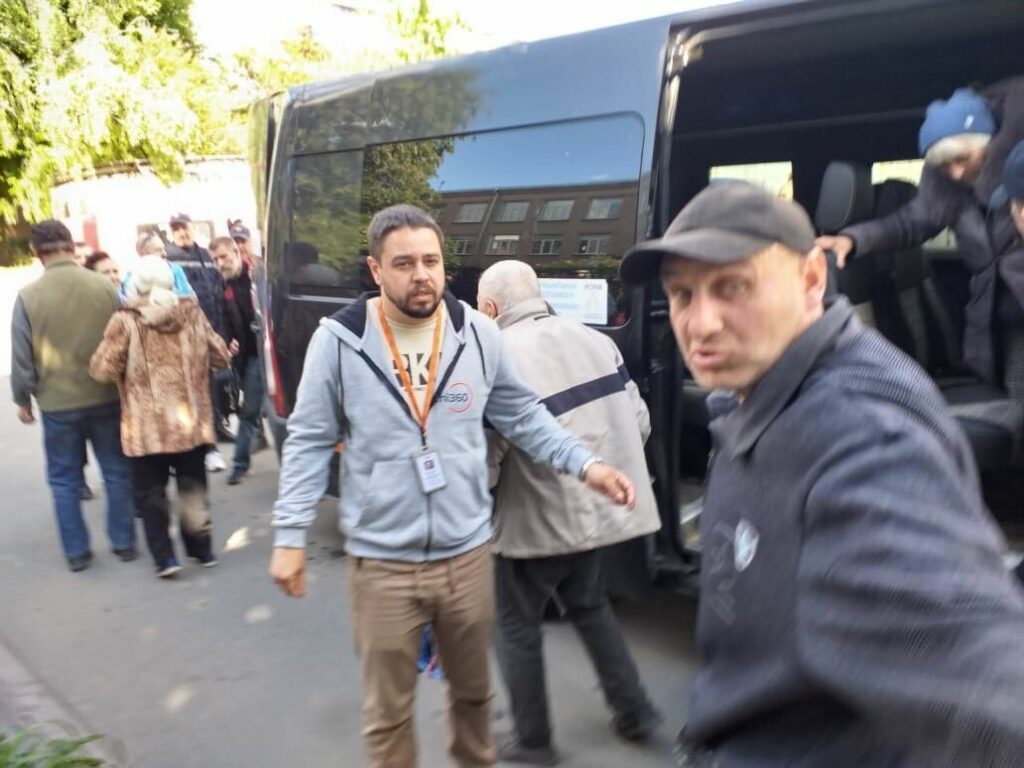
Your Support is Crucial!
The people of Kharkiv and the Kharkiv region are facing unimaginable hardship. With your support, Razom can continue to provide life-saving assistance and help to evacuate.
Donate to Razom for Ukraine today and make a difference in the lives of those affected by the war.
Together, we can stand with Ukraine and help them overcome this dark chapter in our history.
Celebrate Ukrainian Culture and Strength with Vyshyvanka Day!
#RazomVyshyvankaDay 🇺🇦
As we gear up to celebrate Vyshyvanka Day on May 16th, let’s delve into the significance of this intricate embroidered garment and why it holds such a profound place in Ukrainian culture.
The vyshyvanka is more than just a piece of clothing; it’s a vibrant tapestry woven with history, symbolism, and regional flair. Each stitch and motif carries a deeper meaning, passed down through generations. Here’s a glimpse into the rich symbolism embedded in Ukrainian embroidery:
• Colors hold significant meaning. Red symbolizes passion, love, and prosperity; blue represents peace, sky, and water; yellow signifies the sun, harvest, and joy.
• Ukrainian embroidery can reflect a blend of ancient beliefs and Christian faith. Geometric patterns like circles and squares might represent the sun, earth, or fertility, while Christian symbols like crosses and stars can also be incorporated.
• Embroidery styles and motifs differ across Ukraine’s diverse regions. For example, the Poltava region is known for its colorful floral patterns, while the Chernihiv region features intricate geometric designs.
Why Vyshyvanka Day Matters
Celebrating Ukrainian Culture:
Vyshyvanka Day is a day when Ukrainians worldwide proudly don their embroidered attire, showcasing their solidarity and unwavering commitment to preserving their heritage. It’s a celebration that not only honors the past but also paves the way for future generations to embrace their roots.
Resisting Cultural Erasure:
The vyshyvanka stands as a symbol of resistance. As Russia seeks to undermine Ukrainian identity, this traditional garment becomes a powerful tool of defiance, reminding the world that the spirit of Ukraine cannot be extinguished.

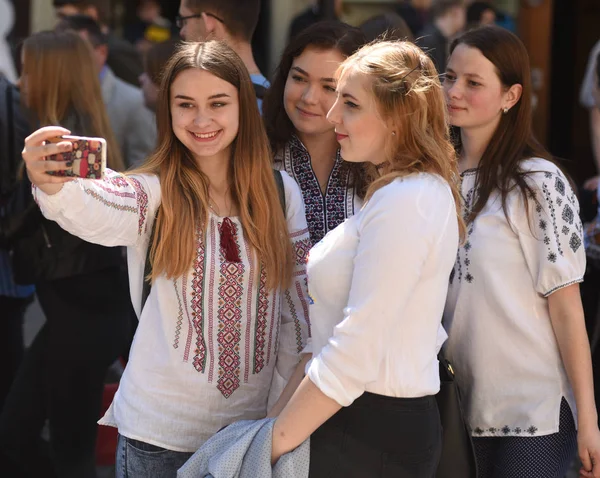
Share your photos on social media using #RazomVyshyvankaDay and #VyshyvankaDay to raise awareness about this important cultural symbol and inspire others to participate.
On Vyshyvanka Day, let’s not only adorn ourselves with the beauty of embroidered patterns but also carry forward the legacy they represent. Let’s stand in solidarity with Ukraine, embracing its culture, history, and unwavering spirit. Together, let’s weave a tapestry of resilience, unity, and hope that transcends borders and generations.
Join the movement, wear your vyshyvanka with pride, and let the world witness the enduring strength of Ukraine.
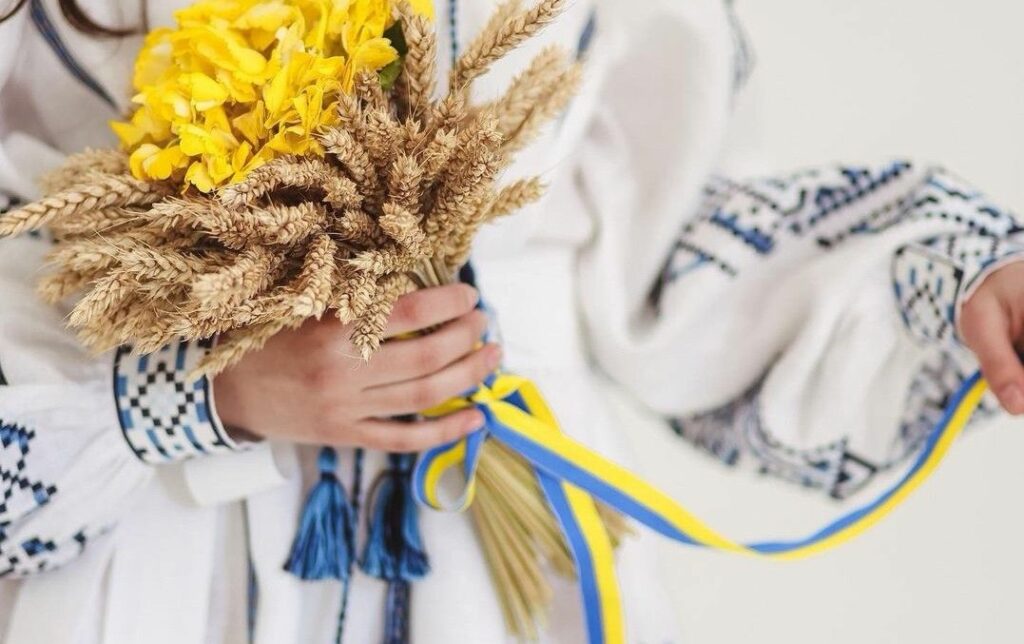
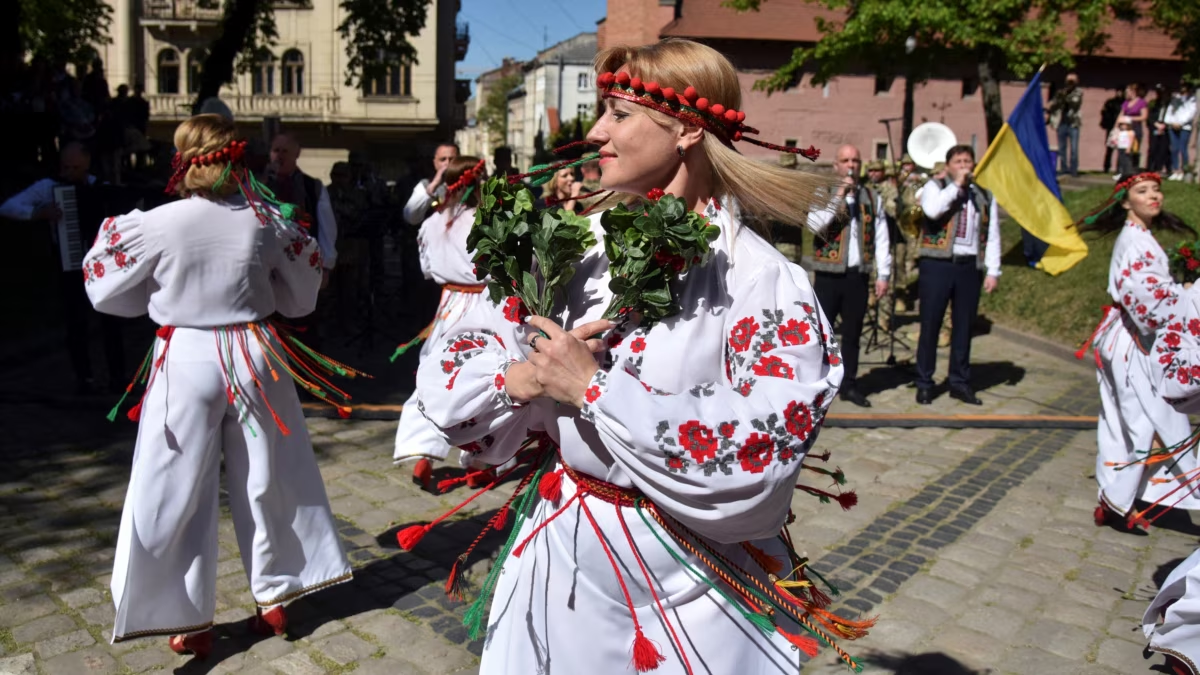
Surgeons From War-Torn Ukraine Are Receiving Life-Saving Training in the U.S.
Razom’s Co-Pilot Project, in partnership with Oklahoma University Health and the American Academy of Facial Plastic & Reconstructive Surgeons, is bringing skilled surgeons from Ukraine to America for a one-month clinical observership.
Led by Dr. Mark Mims, OU Health’s Operation Ukraine program has sponsored its third cohort of surgeons, who practice in military hospitals in Lviv and Kyiv, tending to wounded soldiers daily.

The primary goal of the observership is to provide these surgeons with advanced training in microvascular and reconstructive techniques, addressing critical gaps in complex care in Ukraine. Before the full-scale invasion, the microvascular subspecialty was unavailable in Ukraine, but it has now become one of the most necessary specialties due to the prevalence of blast injuries.
Through the Co-Pilot Program, Ukrainian surgeons have the opportunity to gain these critical skills. This is done with extensive training, including direct training by American surgeons during medical trips, an observership in America, and continuous mentorship upon their return to Ukraine.
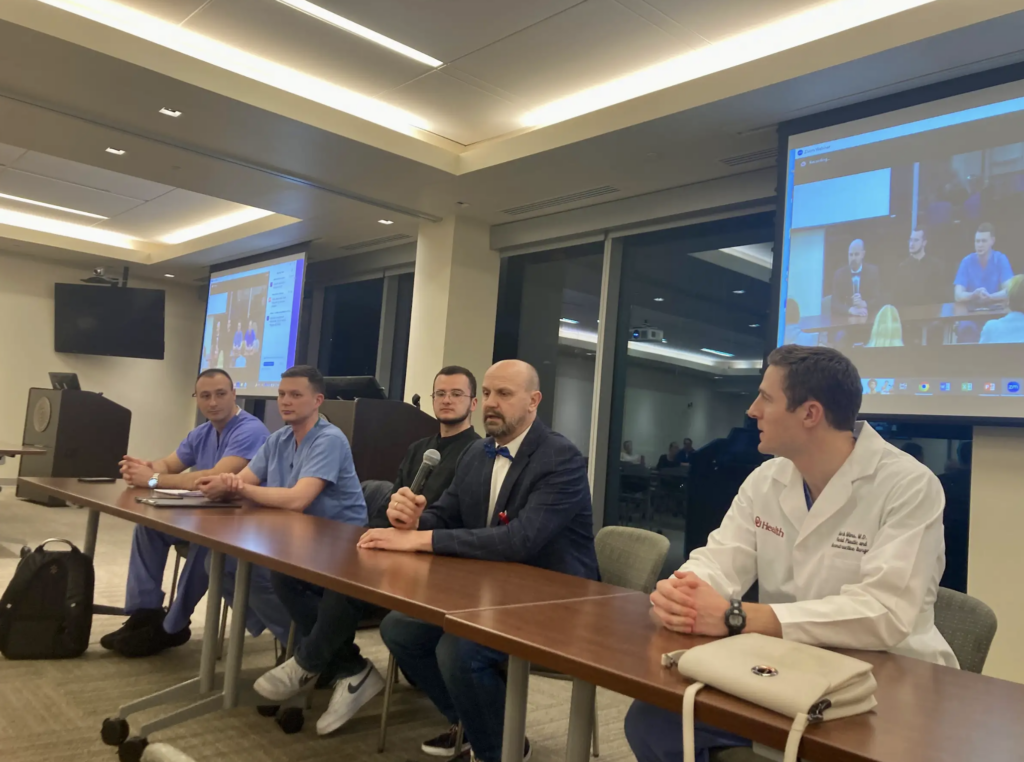
The observership at OU Health is a pivotal component of their training, featuring hands-on experiences, cadaver lab sessions, virtual instruction, and active participation in surgeries with a temporary medical license in Oklahoma. Their training encompasses microsurgery, otolaryngology, head and neck surgery, plastic surgery, oral and maxillofacial surgery, and oculoplastics.
Dr. Panchenko shares, “This opportunity has completely changed my thinking – I now have the skills, experience, and confidence to perform complex microvascular reconstructive surgeries at home.”
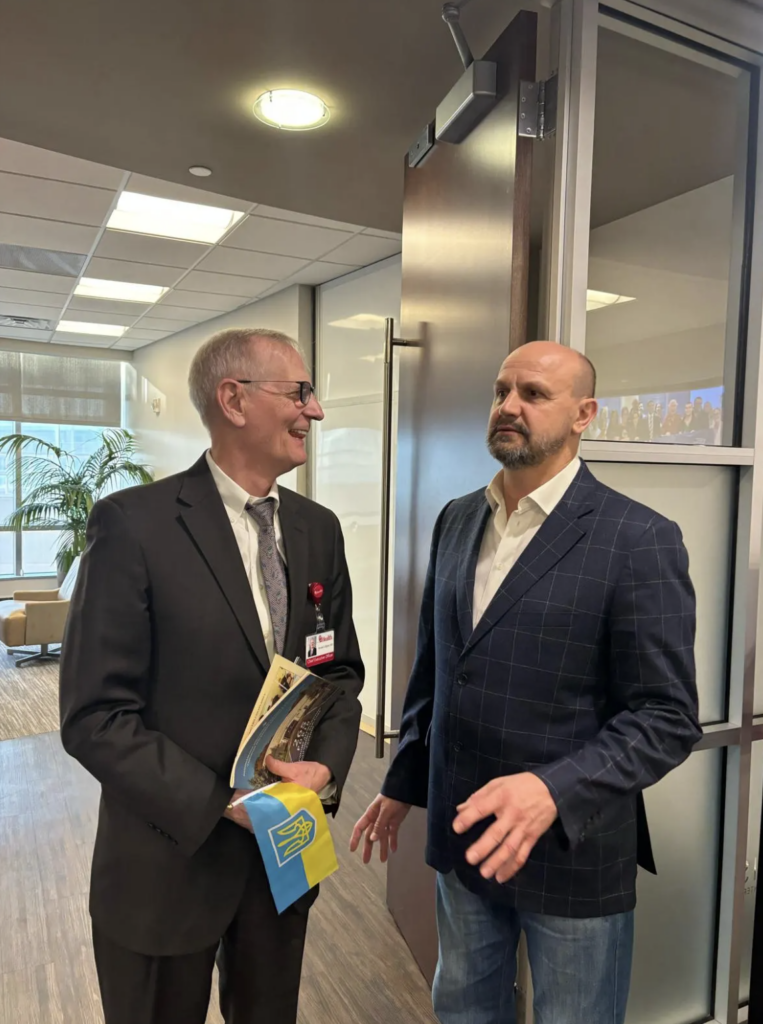
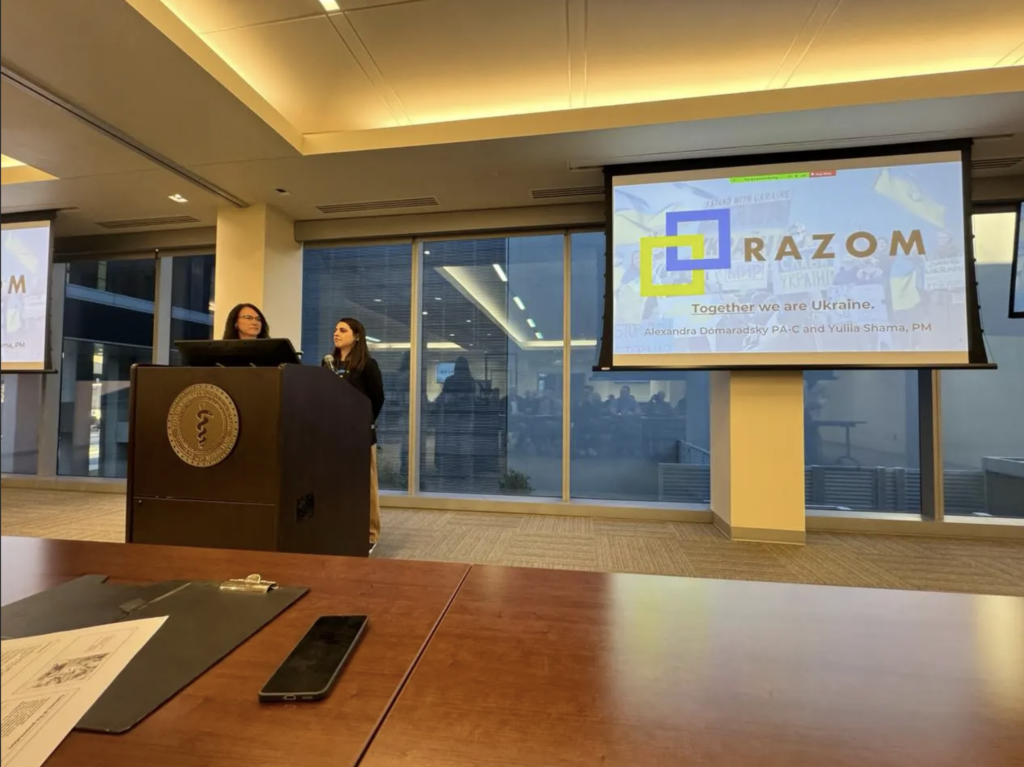
Beyond the operating room, the recent cohort of surgeons participated in a grand rounds lecture, a breakfast gathering of local leaders, and a commemorative event in Washington, DC on February 24th, marking the two-year anniversary. Attended by the local Ukrainian community, government senators and representatives, OU community members, donors, doctors, and healthcare staff, these events fostered meaningful discussions, collaborative efforts, and mutual support.
This approach underscores the profound impact of the Co-Pilot Project not only on surgical expertise but also on healthcare networks, partnerships, and advocacy, marking a significant milestone in global healthcare collaboration.
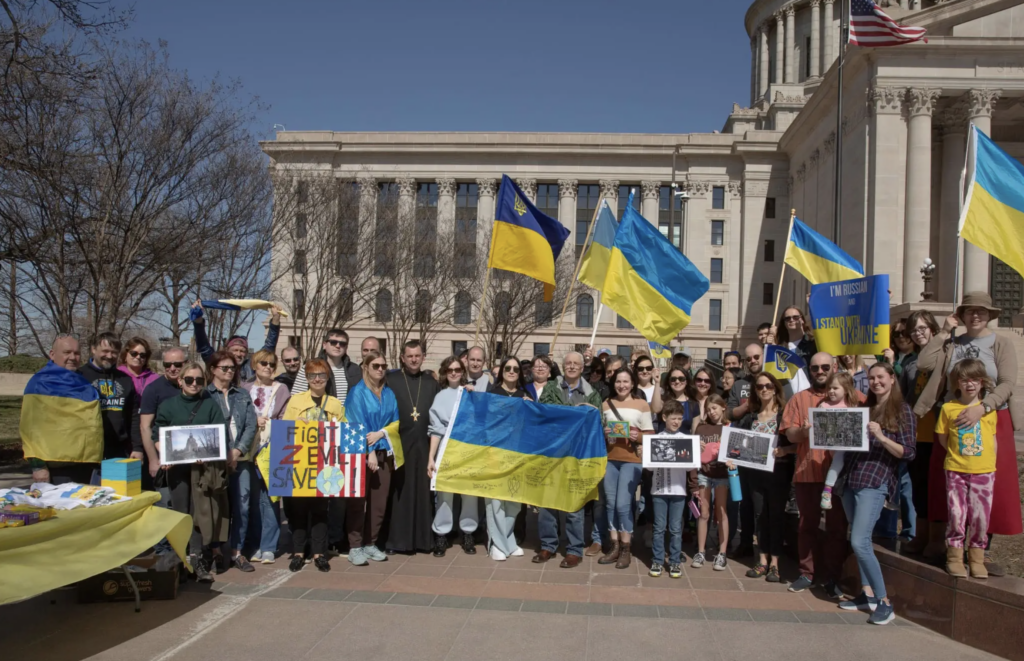
Learn more about and support the Co-Pilot Project and Razom Health.
Razom Hosts Evening with Ukrainian Conductor Oksana Lyniv
On Sunday, April 14, 2024, Razom for Ukraine hosted a Q&A event with maestro Oksana Lyniv, following one of her last performances of “Turandot” at the Metropolitan Opera in New York City.
Maestro Lyniv made history as the first female chief conductor of an Italian opera house at Teatro Comunale di Bologna. Her debut at the Bayreuth Festival with Wagner’s “The Flying Dutchman”, marked another milestone as the first female conductor in the festival’s history. With a remarkable career spanning prestigious venues worldwide, Ms. Lyniv finally graced New York with her presence in 2024, as the first Ukrainian conductor to perform at the Metropolitan Opera.

Razom Board Member, Maria Genkin, moderated the discussion that spanned topics from Ms. Lyniv’s creative process to her cultural diplomacy. The assembled guests heard about how much research goes into conducting a new composer and a new opera, prior to performing, such as investigating what musical and historical background composers like Puccini had, at the time of his work. Also discussed, the differences between the production of the Turandot staged in New York City and the previous one she conducted in Rome, Italy in March 2022. That one, directed by Ai Wei Wei, was framed by a political message that included fresh images from Ukraine’s Bucha.
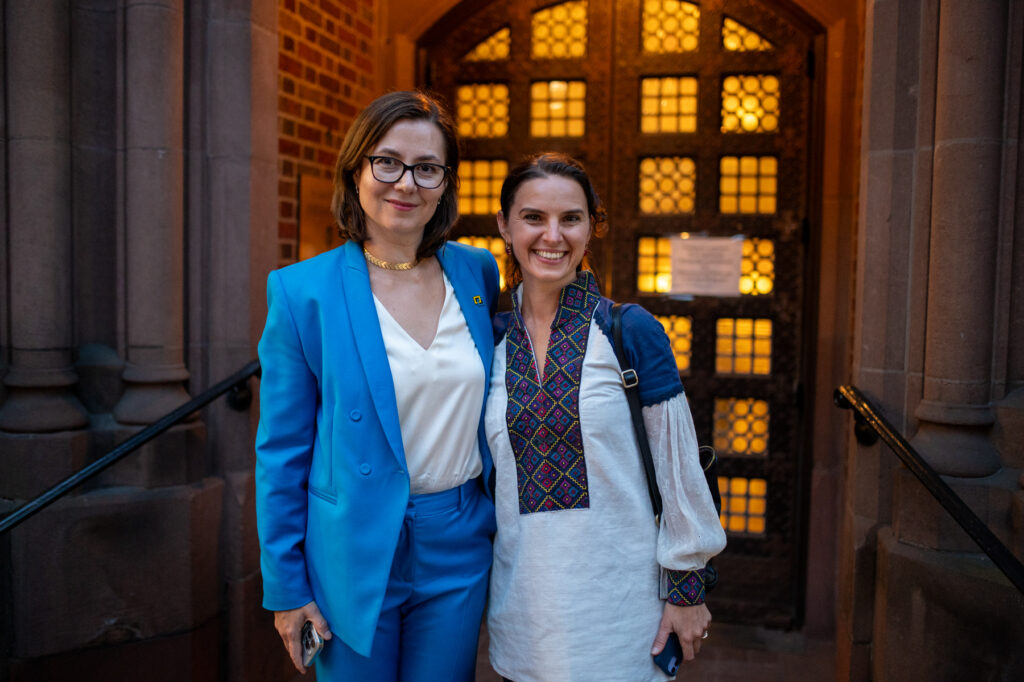
Maestro Lyniv talked about the Youth Symphony Orchestra of Ukraine, an ensemble that she founded, and how this group is representing Ukraine and performing Ukrainian composers at various international festivals. This work is not only a part of cultural diplomacy, but a vital component of developing the next generation of Ukrainian musicians. The topic of the controversial decision to conduct Tchaikovsky’s “Eugene Onegin” at the Dresden Opera this July was also touched upon. The conversation explored how “cancel culture” works in various countries, and how Ms. Lyniv is planning to use this performance to change the narrative about this composer.
“I often hear the comparison that when Ukrainians perform works by Russian authors, they seem to be siding with the enemy. But in reality, it works differently. Russian classical works are just a common musical resource. Furthermore, these works no longer surprise anyone, and no political coloring is projected onto them. The works of Tchaikovsky, Prokofiev, etc., stand alongside the works of Berlioz, Chopin, Brahms, Beethoven, Ravel, etc., and are perceived as mandatory repertoire that every professional musician should master.
Therefore, Ukrainians who achieve success, including by using “their” Russian repertoire resources, are actually moving forward and advancing in creating new performance opportunities for Ukrainian music. It’s akin to our defenders on the front lines seizing the enemy’s weapons and using them to reclaim new territories.” – explains Ms. Lyniv.
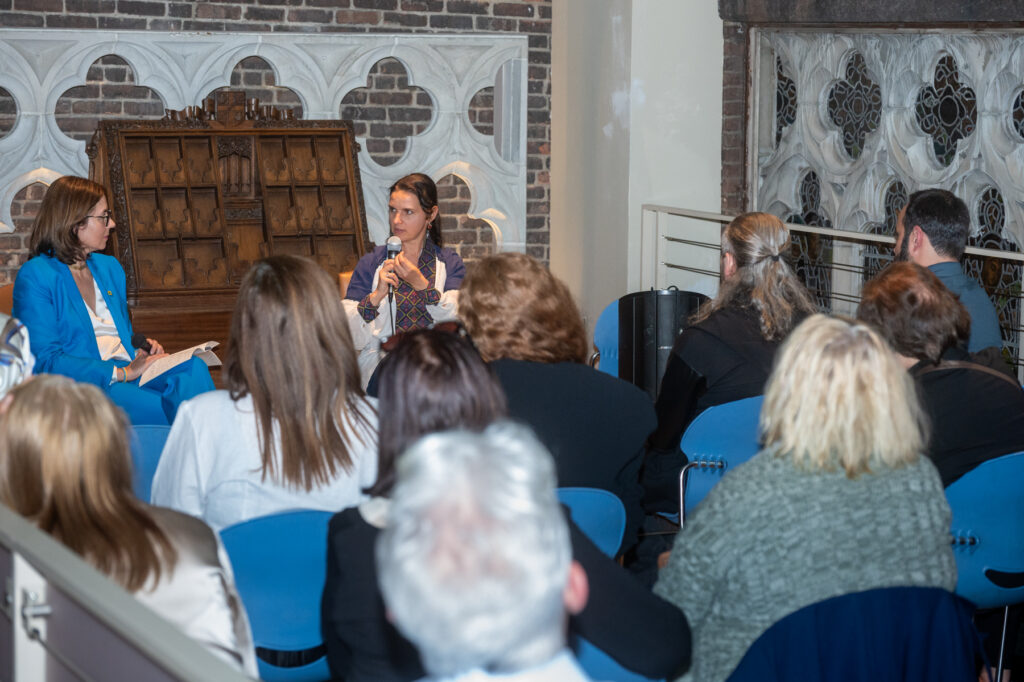
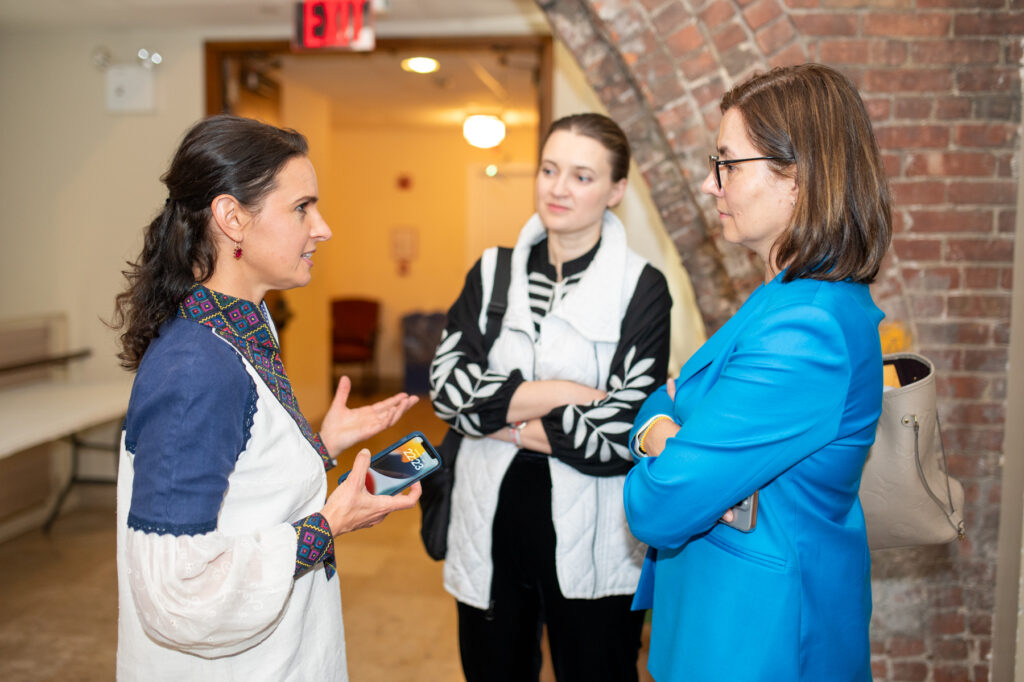
Razom is proud to announce that we will be providing grant support for a visit by four Ukrainian performers from the Youth Symphony Orchestra for a visit to Carnegie Hall’s World Orchestra Week in August. Ukrainian musicians will participate in the European Union Youth Orchestra performance on August 6th. As per maestro Lyniv, while Ukraine is not a part of the European Union, it is an important symbolic measure to have young Ukrainian musicians included in this performance.
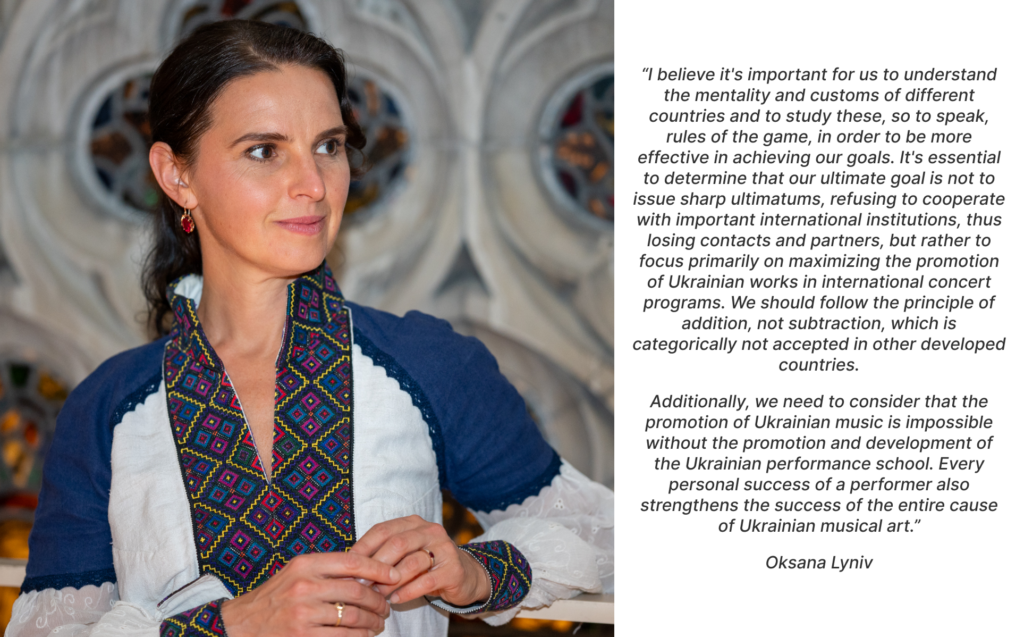
Join Razom Connect and discover the beauty of Ukrainian art, history, and voices!
Make sure to follow our newsletter and social media for more announcements!
Together, we can prove to cultural programmers that Ukrainian stories are necessary and that there is a large audience ready for them.
Every Second Counts: Razom’s Medical Backpacks Equip Ukrainian Heroes
Ukraine’s fight for freedom continues. Since the full-scale invasion began, Razom has been providing critical humanitarian relief to first responders and frontline medics. We adapt our efforts to address the most urgent needs as they evolve.
In March 2023, Razom Heroes saw a need for better medical backpacks so we listened to frontline medics’ who shared their experiences and feedback highlighting the need for practical and efficient solutions.
Research and Development
We engaged with medics with first hand experience using medical backpacks on the frontlines. We gathered their feedback on what needed to be changed, added, or improved, including the ideal backpack format, weight, and contents.
Committed to supporting Ukrainian production, Razom sourced top-quality packs and medical equipment made in Ukraine. This decision not only ensured quality but also strengthened the domestic market.
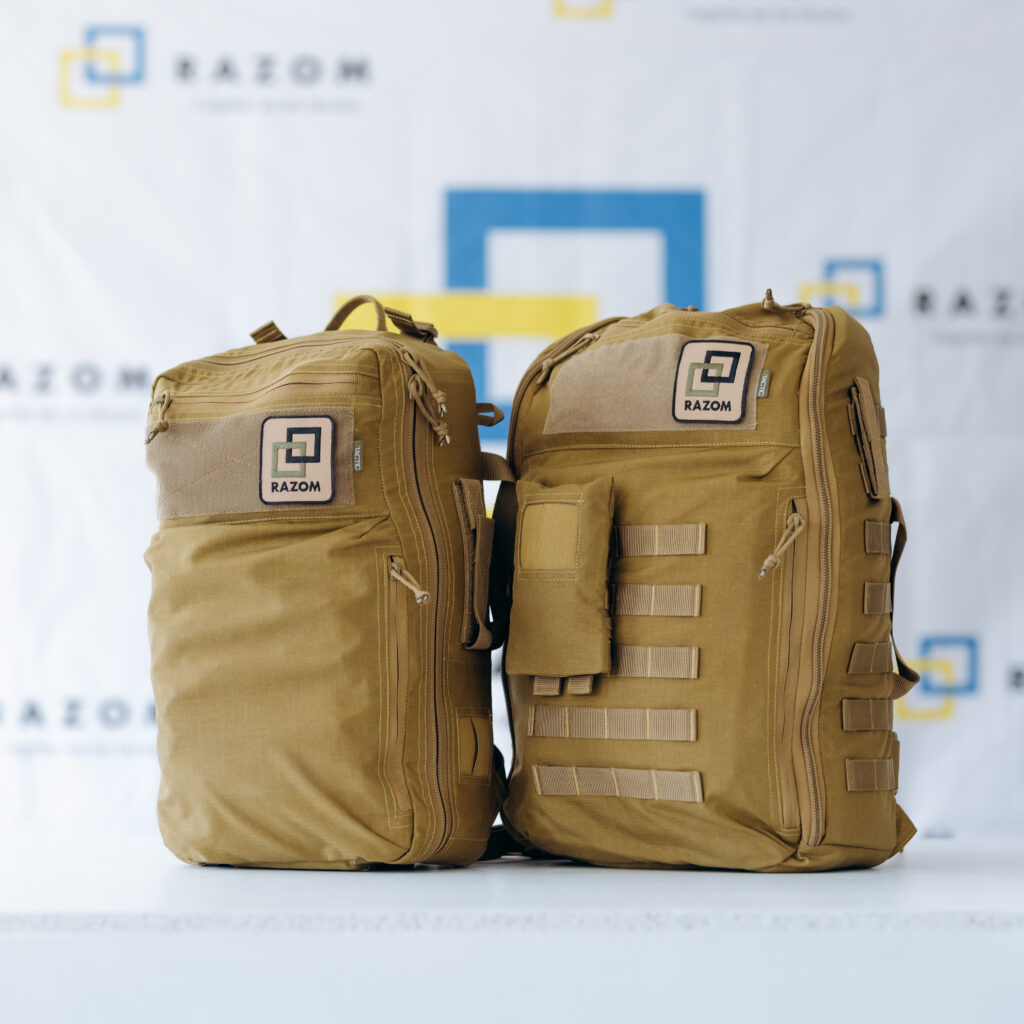
We created two sizes: a 16-liter and a 23-liter “Medical Backpack for and Rescuers” and a 23-liter Through collaboration with partner organization BF “PULSE,” we refined the design and developed standardized kits adhering to Tactical Casualty Care (TCCC) guidelines.

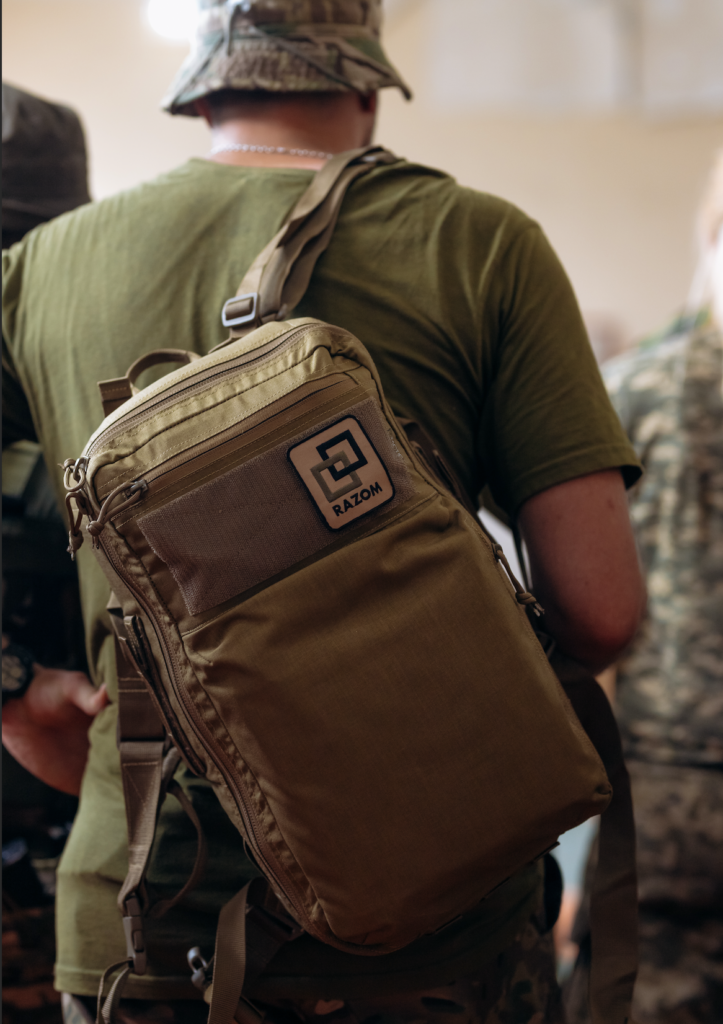
Our backpacks are proudly manufactured in Lviv using genuine Cordura 500D material with a polyurethane coating. Thanks to our dedicated team, we source proven Ukrainian-made medical components, which are then efficiently assembled at our warehouse.
Razom’s medical backpacks are packed with modern equipment and supplies for critical medical procedures, including hemorrhage control and stabilizing damaged organs. Beyond the packs themselves, Razom conducts two-week tactical medicine courses that play a crucial role in preparing medics on the proper use of this life-saving equipment to provide essential and critical care.
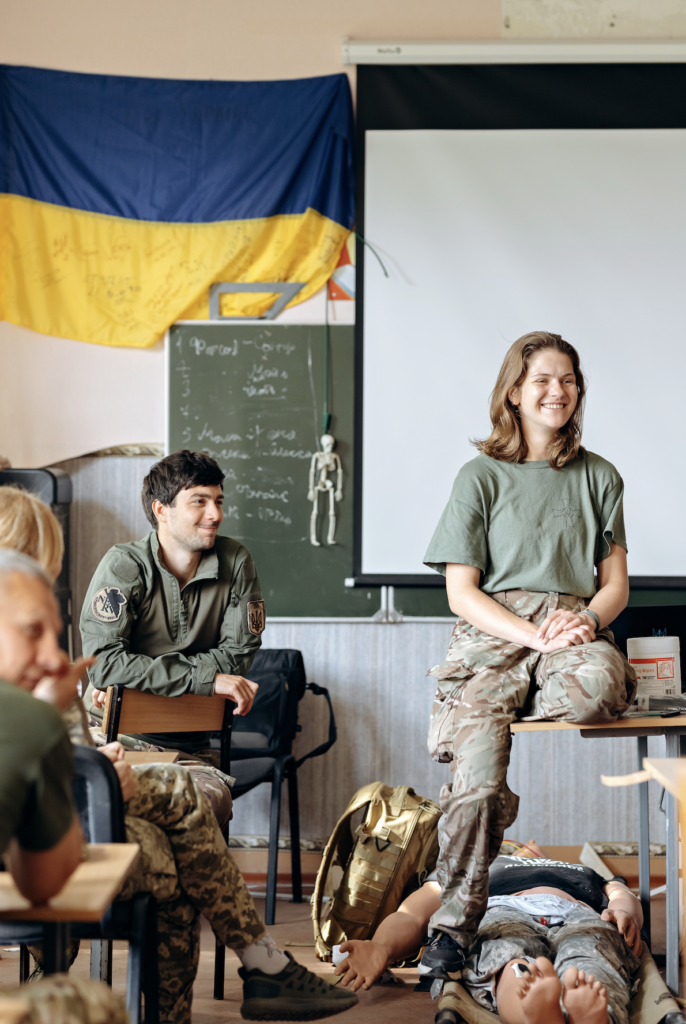
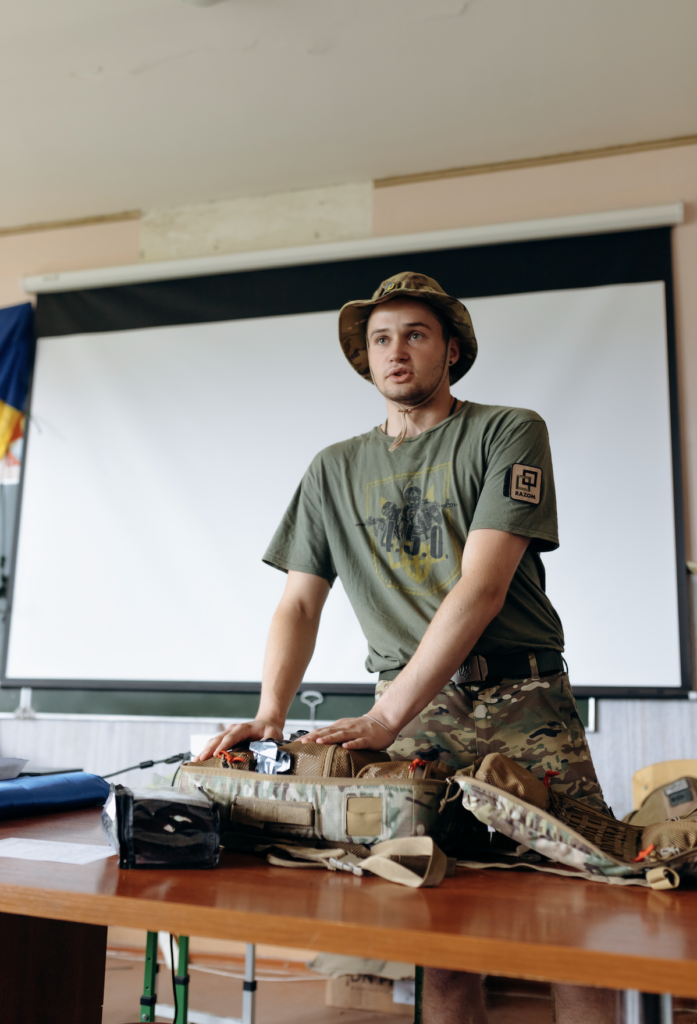
Together, We Make a Difference
Razom Heroes are dedicated not only to providing medical backpacks, but also to ensuring they are equipped with the best supplies and that medics are trained to use them effectively.
By supporting Razom, you join us in saving lives and helping Ukraine overcome this immense challenge. ❤️
We invite you to learn more and support Razom’s Heroes Program!
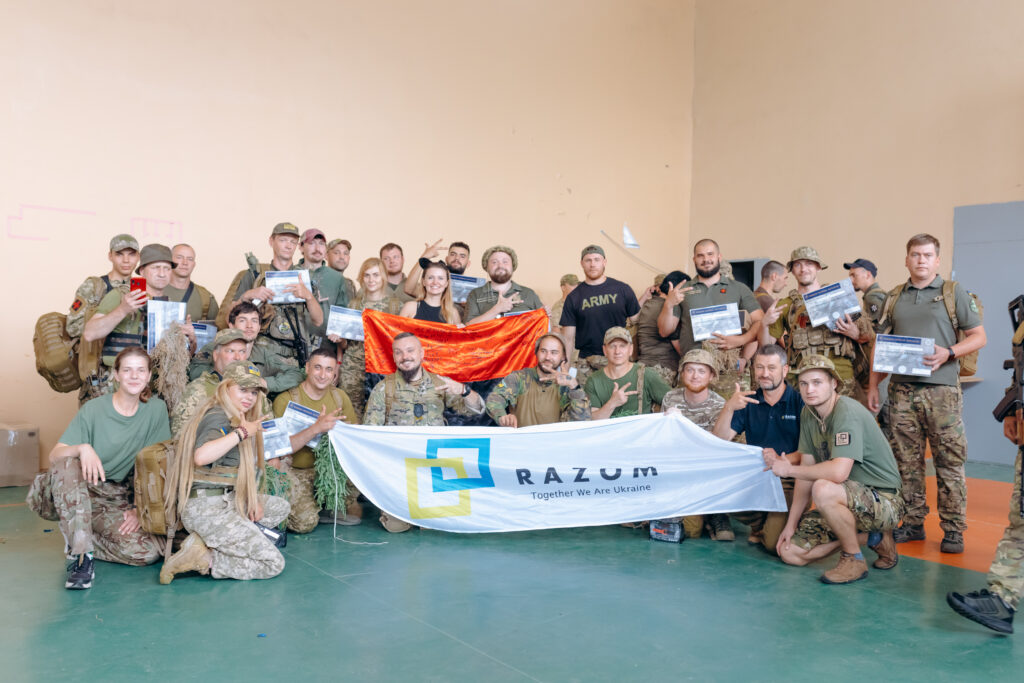
Ukrainian Moot Court Team Triumphs at Oxford
Razom remains committed to supporting Ukraine’s future leaders! We recently helped the Taras Shevchenko National University team compete in the Oxford Intellectual Property (IP) Moot Court Competition. Coached by Ilona Boliubash and Nataliia Badora, the team – Anastasiia Tolkachova, Anna Tkachuk, and Sofiia Yermolenko – made Ukraine proud. They faced off against 27 teams worldwide and won 2 out of 4 rounds!
This achievement is even more inspiring considering the wartime environment in which the team prepared. Despite the challenges, the three contenders persevered, showcasing their talent and skills. The competition not only deepened their legal expertise but also provided valuable intercultural exposure. Representing Ukraine on the world stage during such a difficult time was a moment of immense pride.
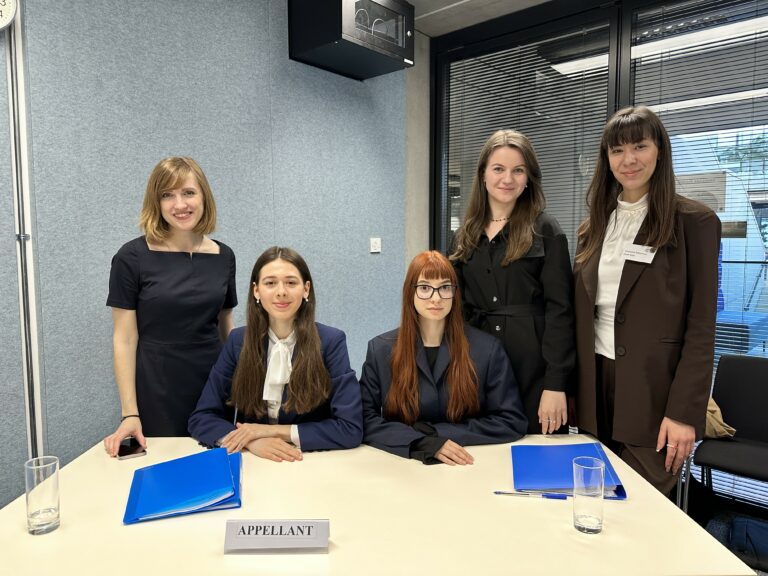
It’s crucial for Razom to support young minds and make their participation possible. Their journey doesn’t end here. They are committed to continuous improvement, aiming to become the next generation of Ukrainian IP leaders and ensure Ukraine’s continued presence at this prestigious event.
Voices from the Team
Sofiia Yermolenko: “Participating in the Moot Court was transformative. It allowed me to feel like a normal student again. The sense of community and shared passion for IP law was truly inspiring. I gained valuable knowledge and skills that I’m eager to use to contribute to a post-war Ukraine fostering innovation and economic growth.”
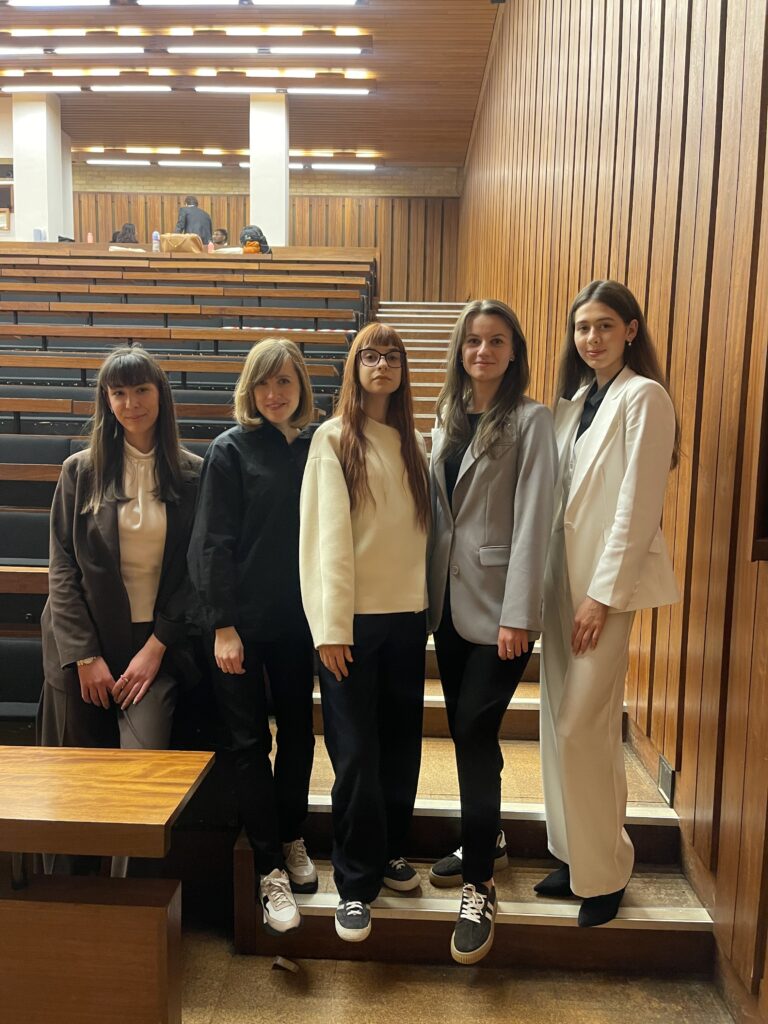
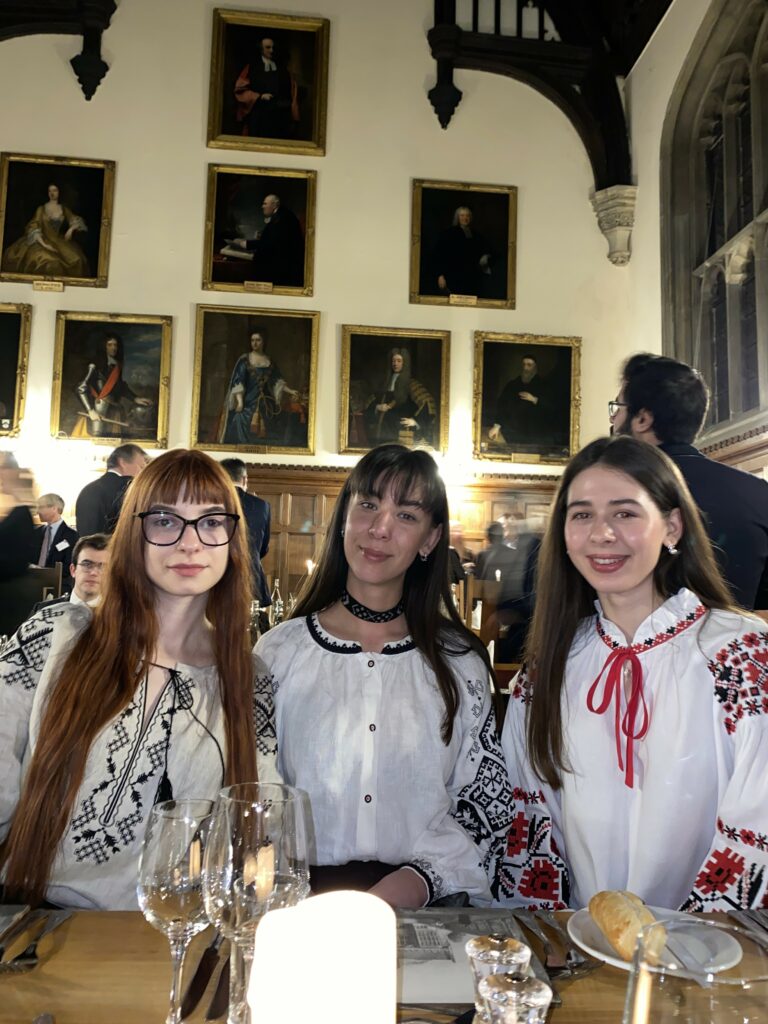
Anastasiia Tolkachova: “Representing Ukraine at Oxford was a unique and unforgettable experience. The team’s dedication and passion fueled our success. Our heartfelt thanks go to Razom for Ukraine, our incredible coaches, and the welcoming global community of IP enthusiasts we met. This event was a breath of fresh air – a week free from the constant threat of war. It recharged me and ignited a renewed energy to contribute to Ukraine’s legal system and post-war development.”
Anna Tkachuk: “The Oxford Moot Court fosters a supportive environment, creating a true community. The opportunity to interact with talented students, experienced coaches, and esteemed judges was incredibly rewarding. The oral rounds were particularly valuable, pushing me to hone my advocacy skills and receive real-time feedback. Looking back, I’m proud of our team’s research, legal performance, and ability to stand out in such a competitive field.”
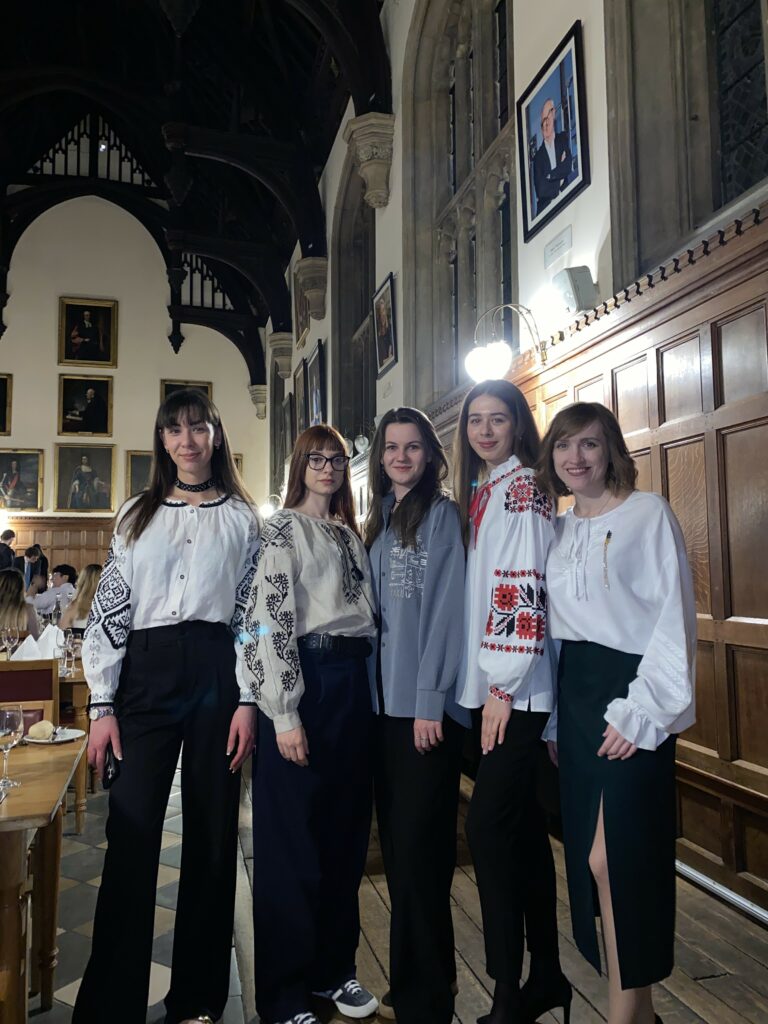
The story of the Ukrainian team at the Oxford Moot Court is one of hope and dedication. It highlights the transformative power of education and the unfaltering spirit of a nation united in the face of adversity. Their success serves as an inspiration to all, demonstrating that even in hardship, the pursuit of knowledge and a brighter future continues.
Learn more about the Razom Ticket project and support the brilliant young minds of Ukraine today!
Razom for Ukraine endorses Speaker Johnson’s Ukraine bill
- « Previous Page
- 1
- 2
- 3
- 4
- 5
- 6
- ...
- 33
- Next Page »
